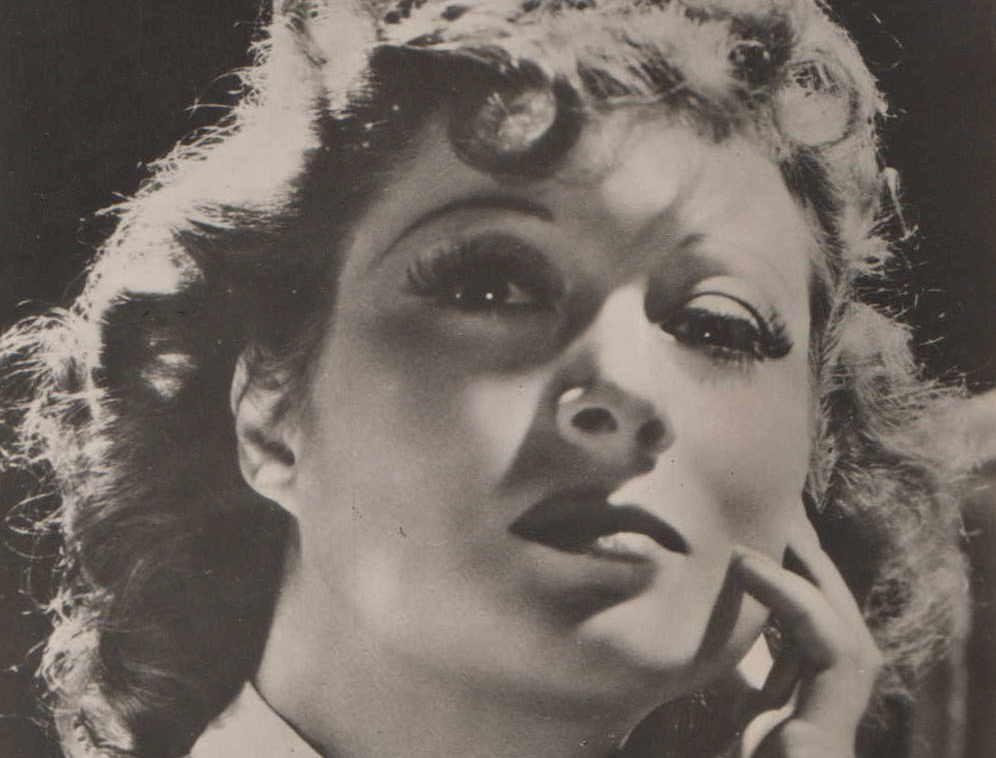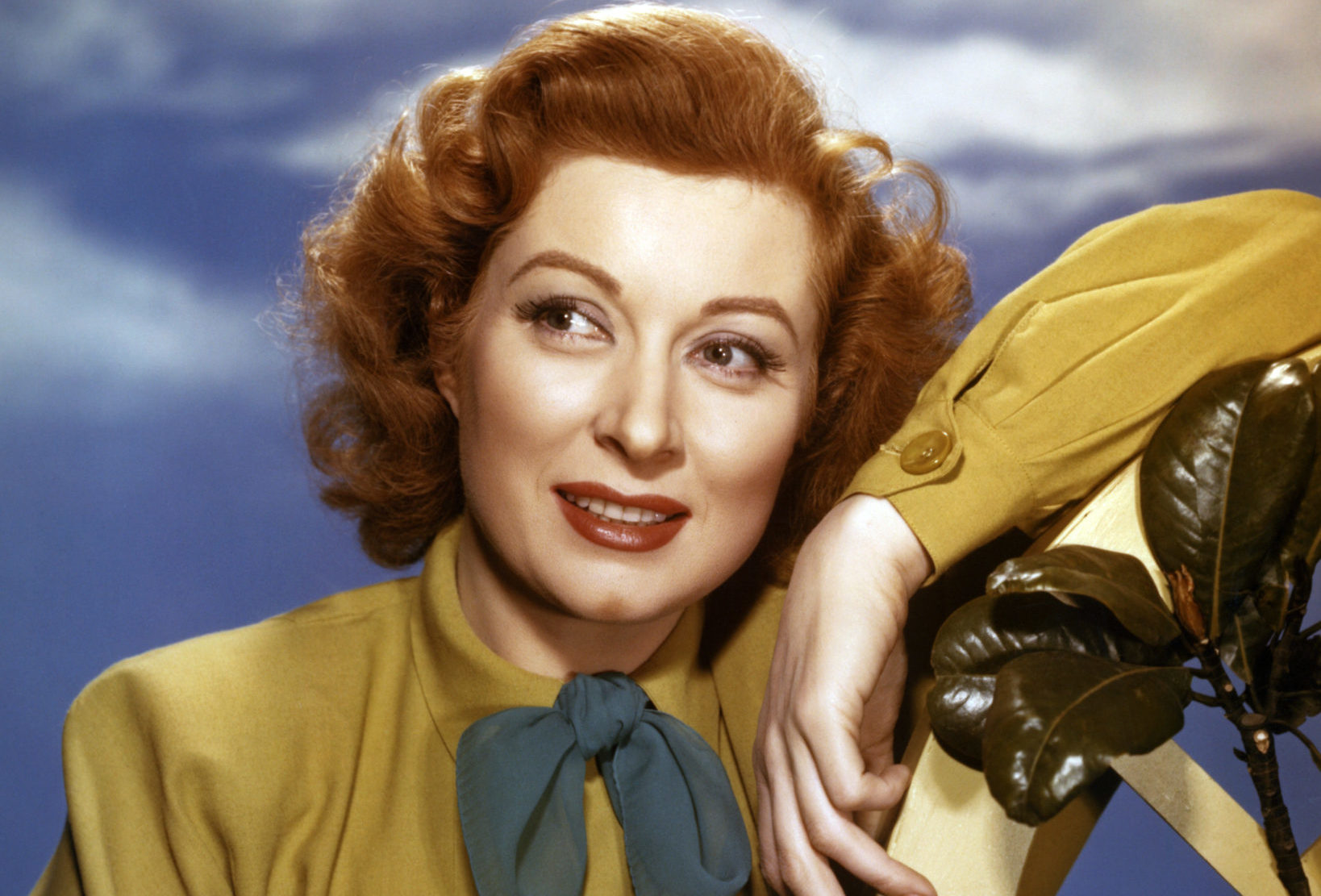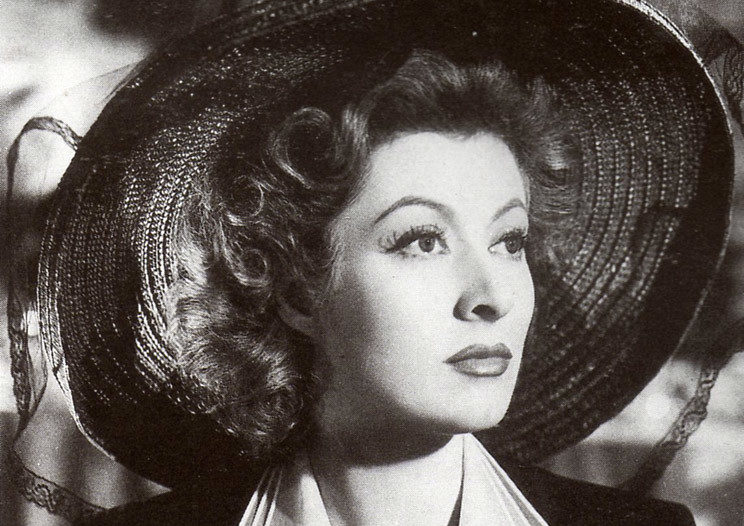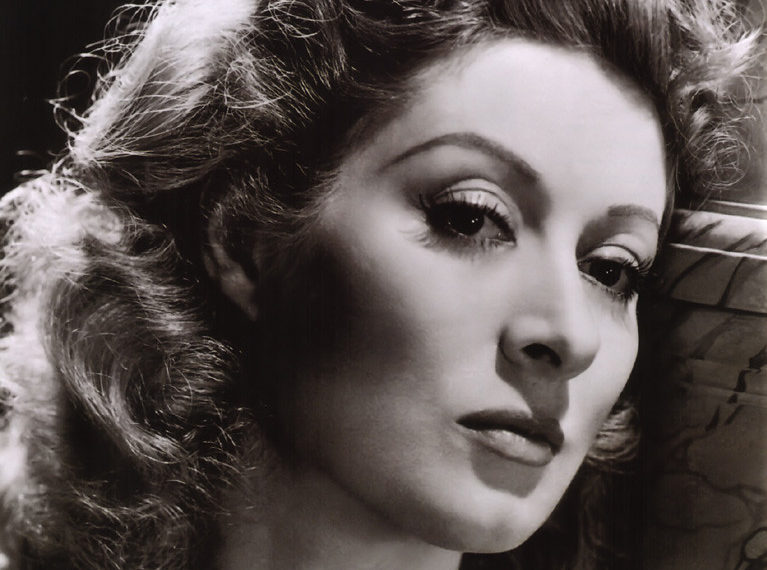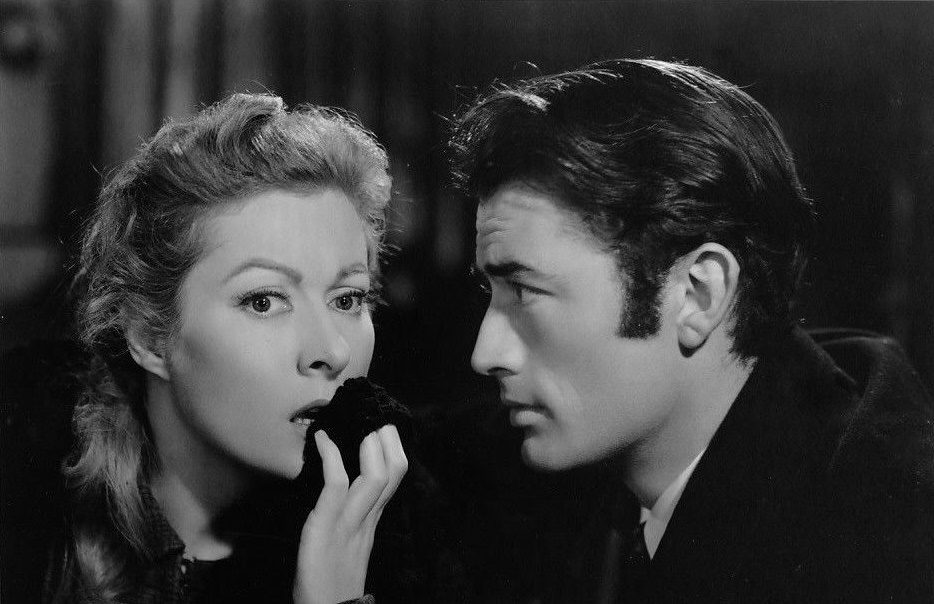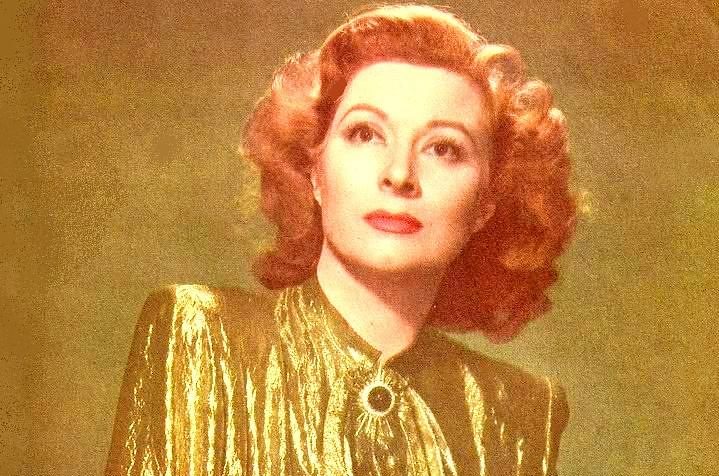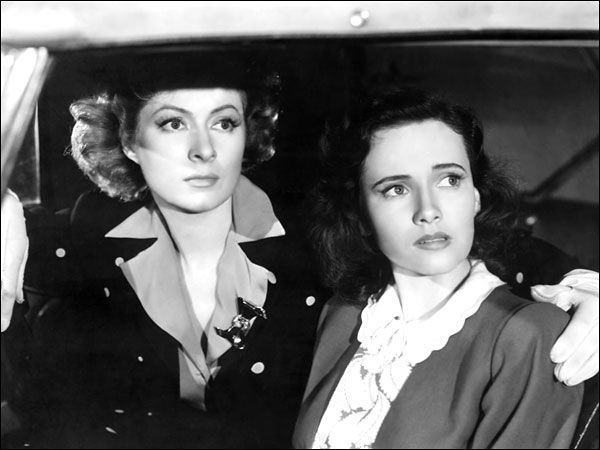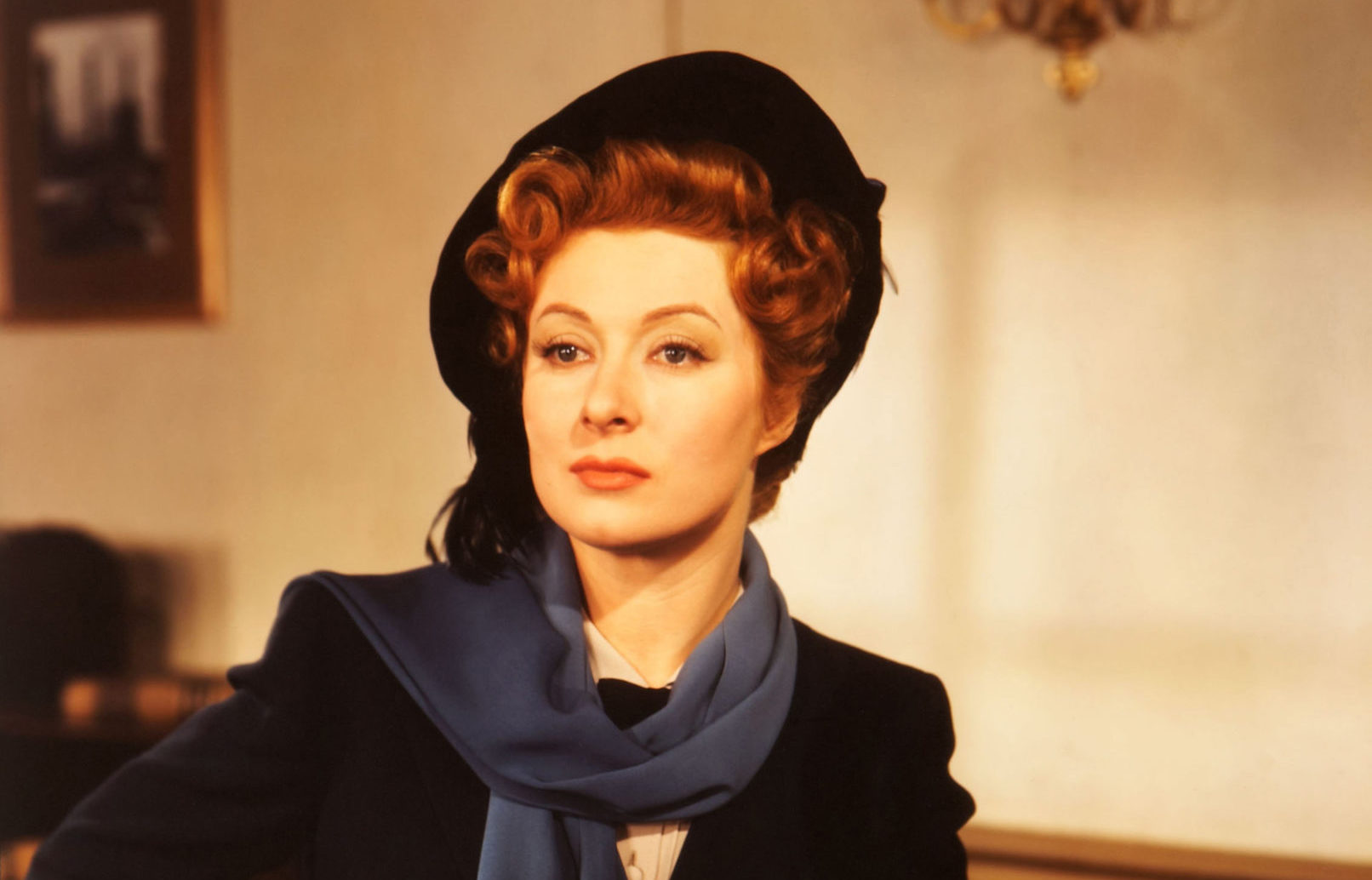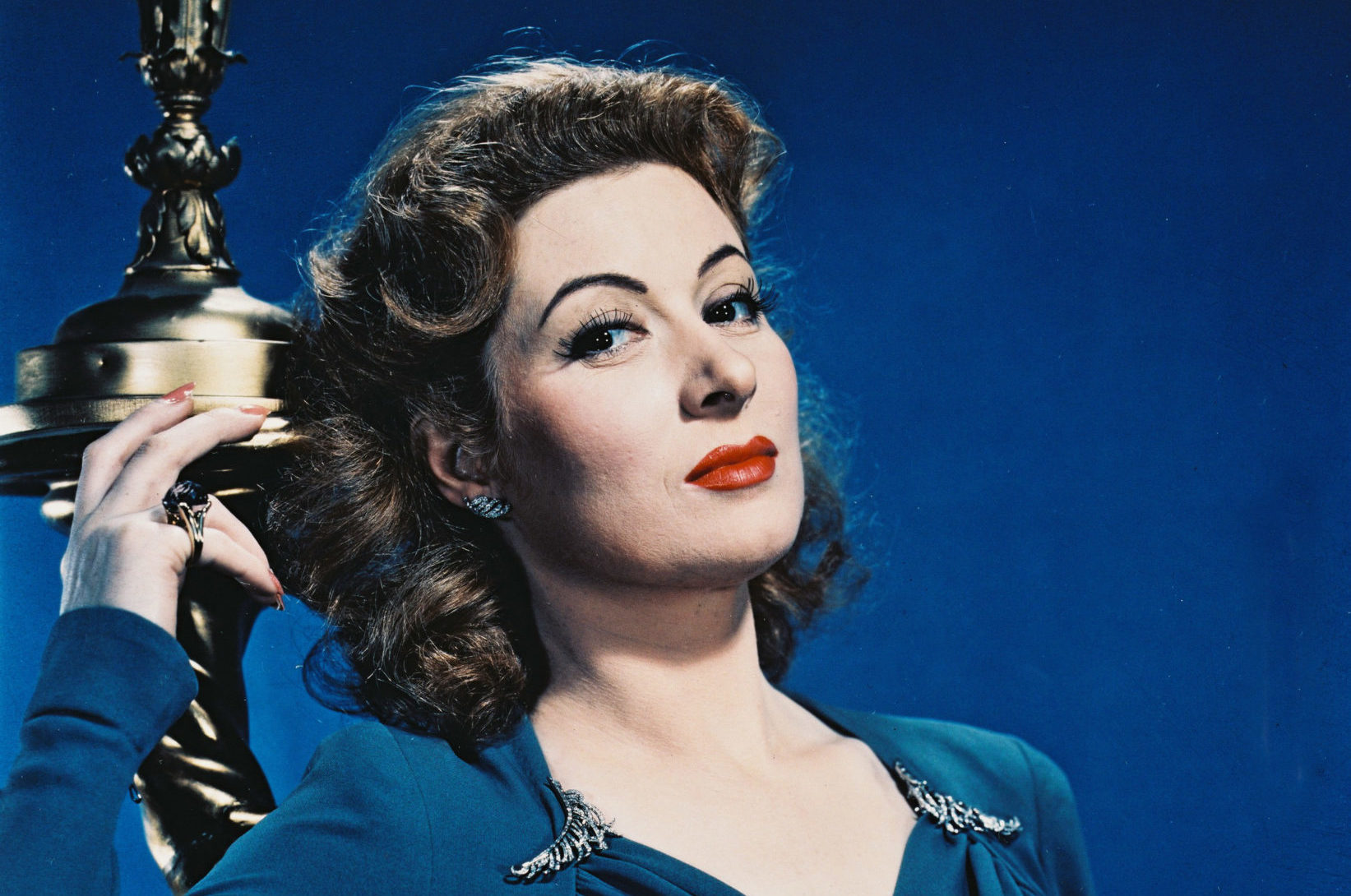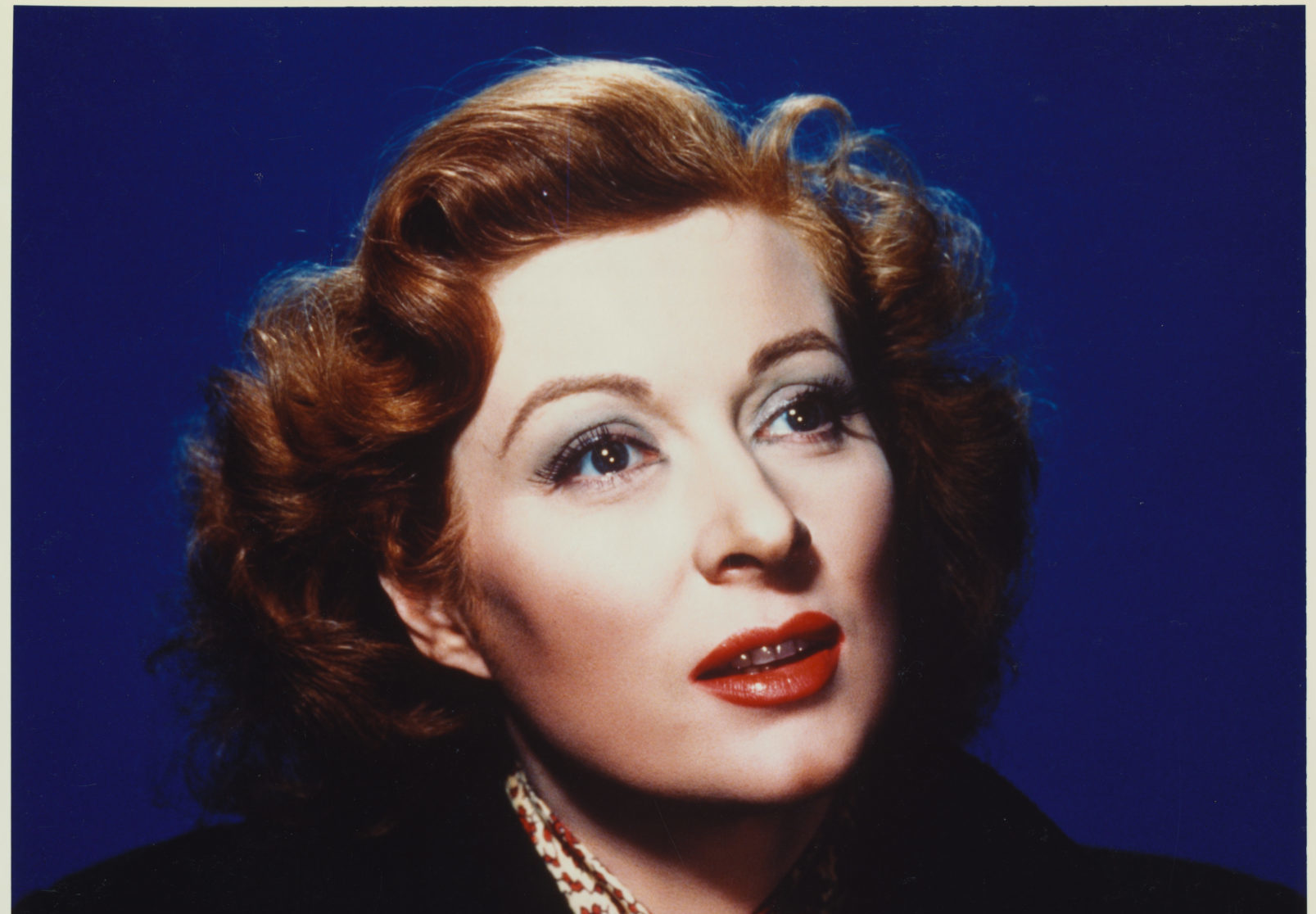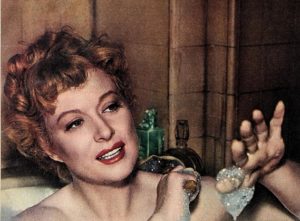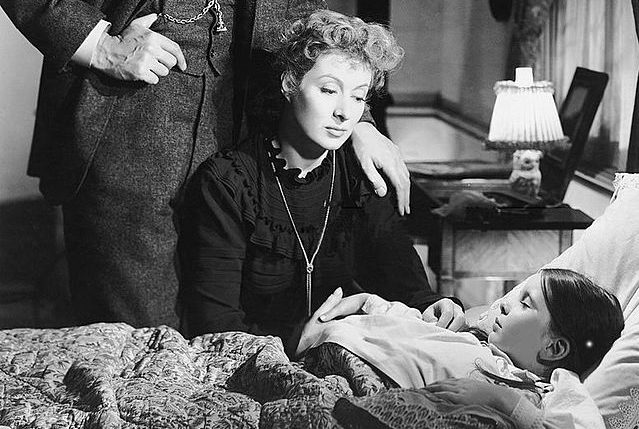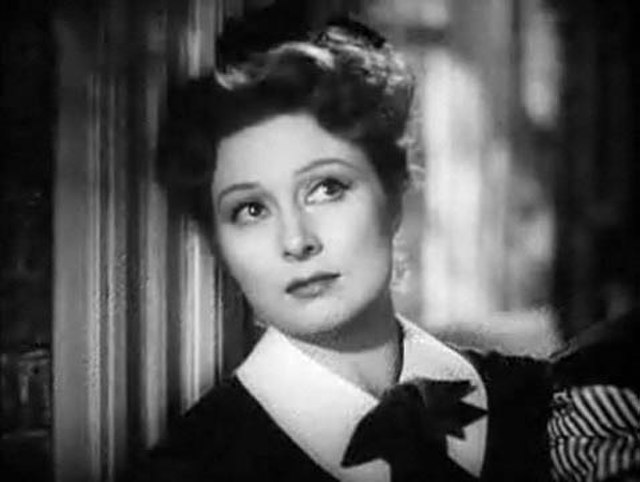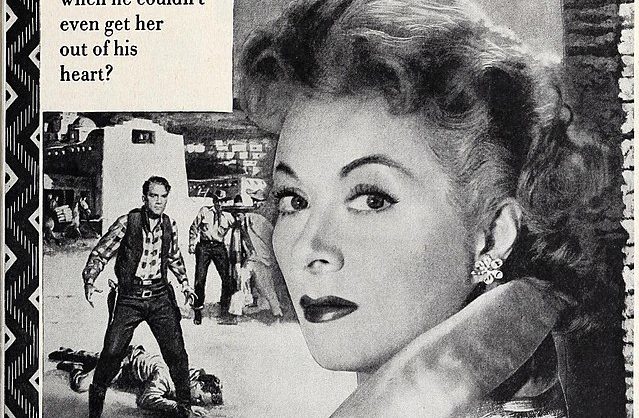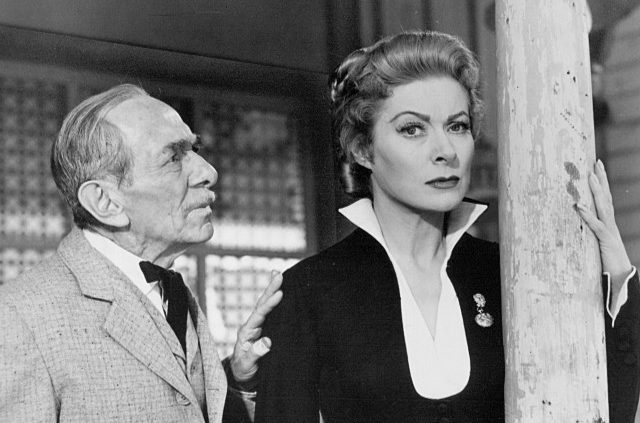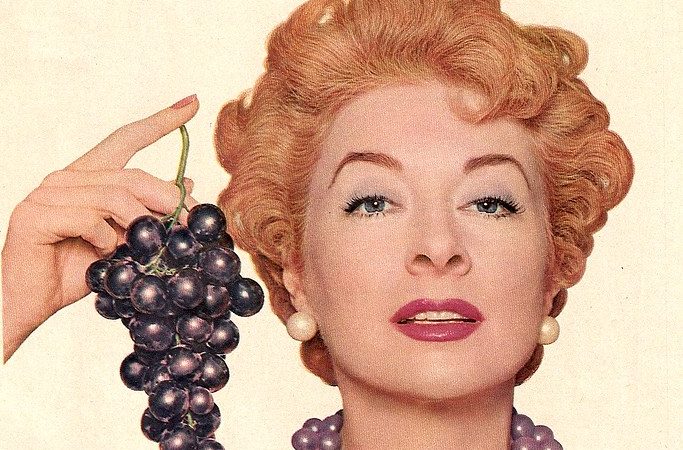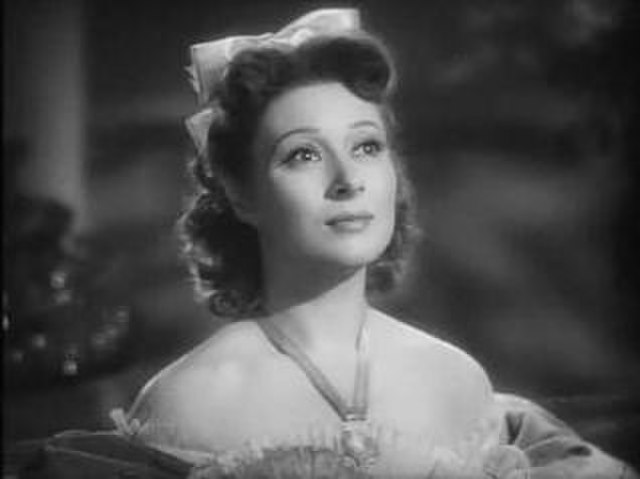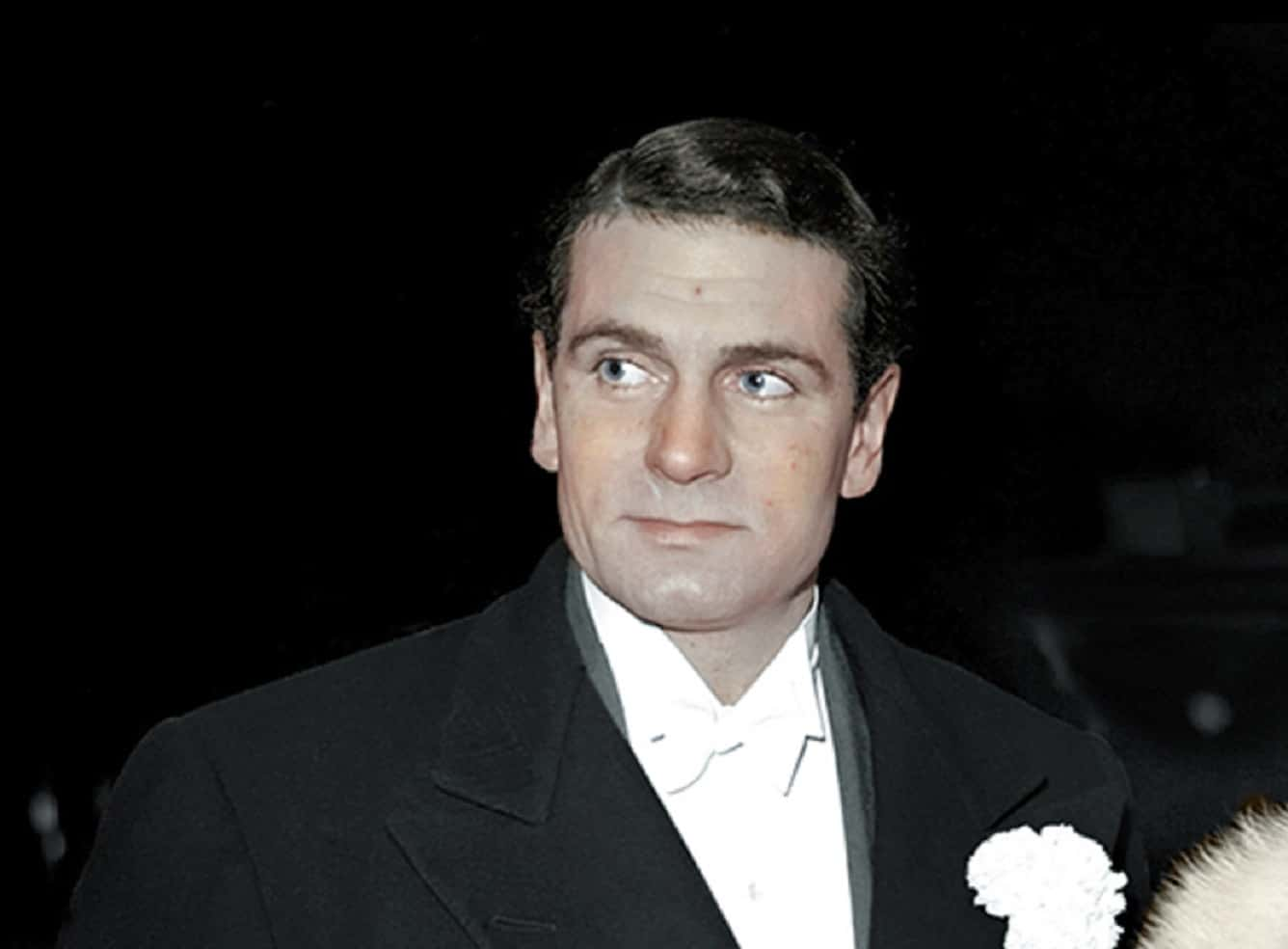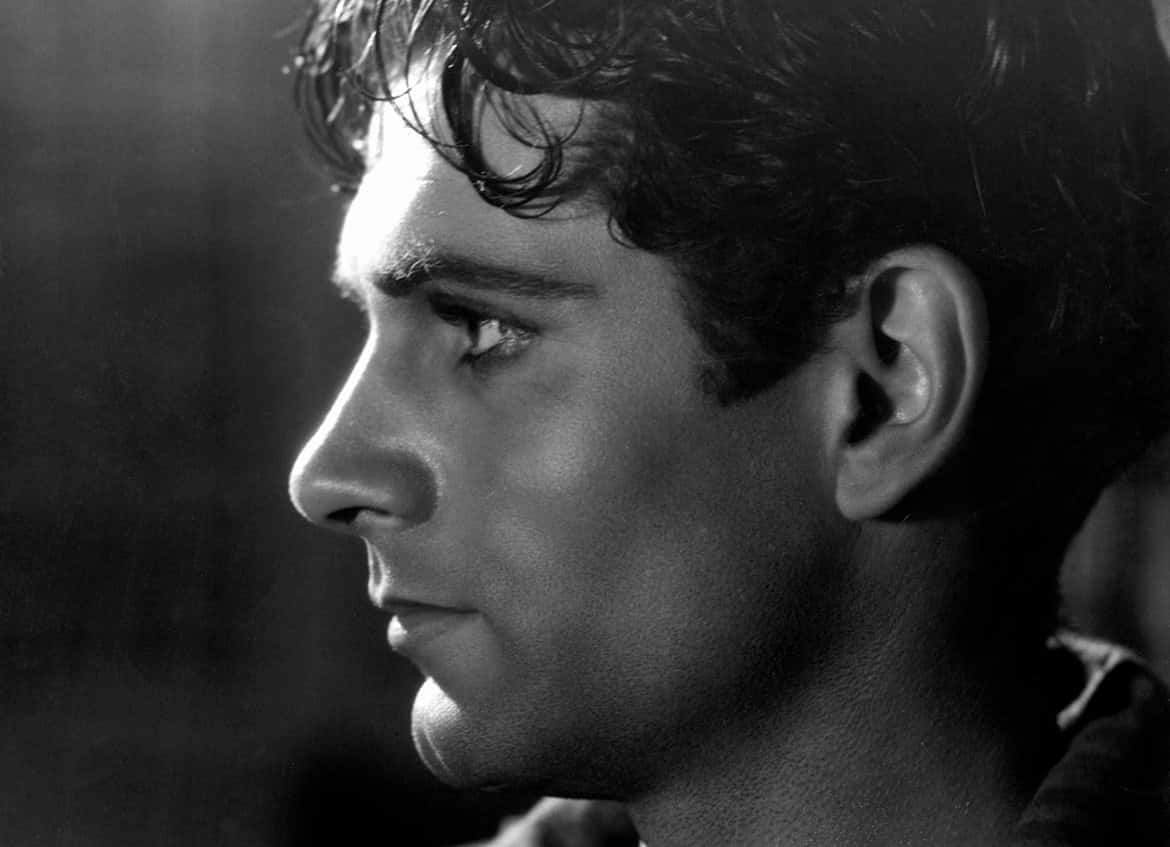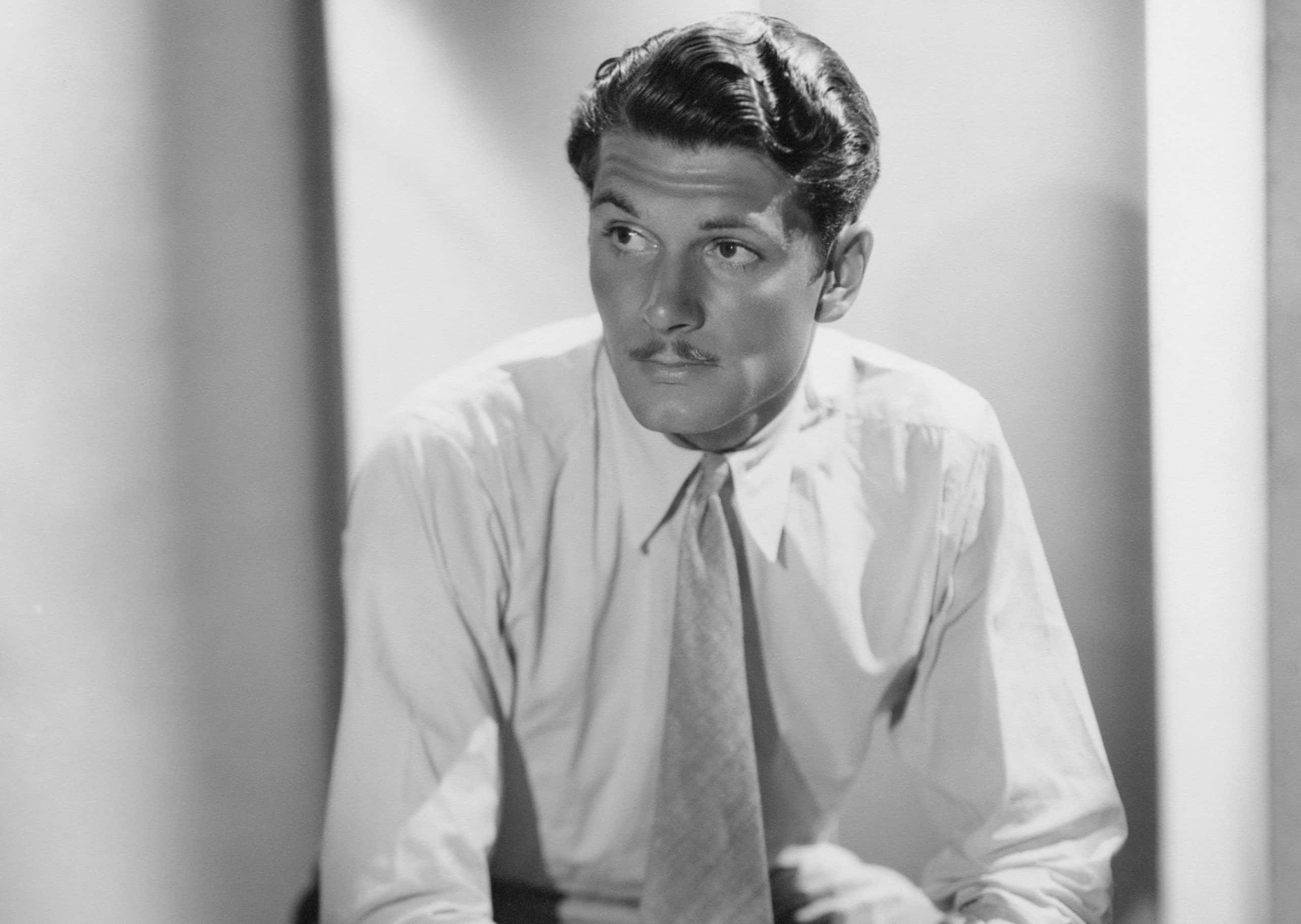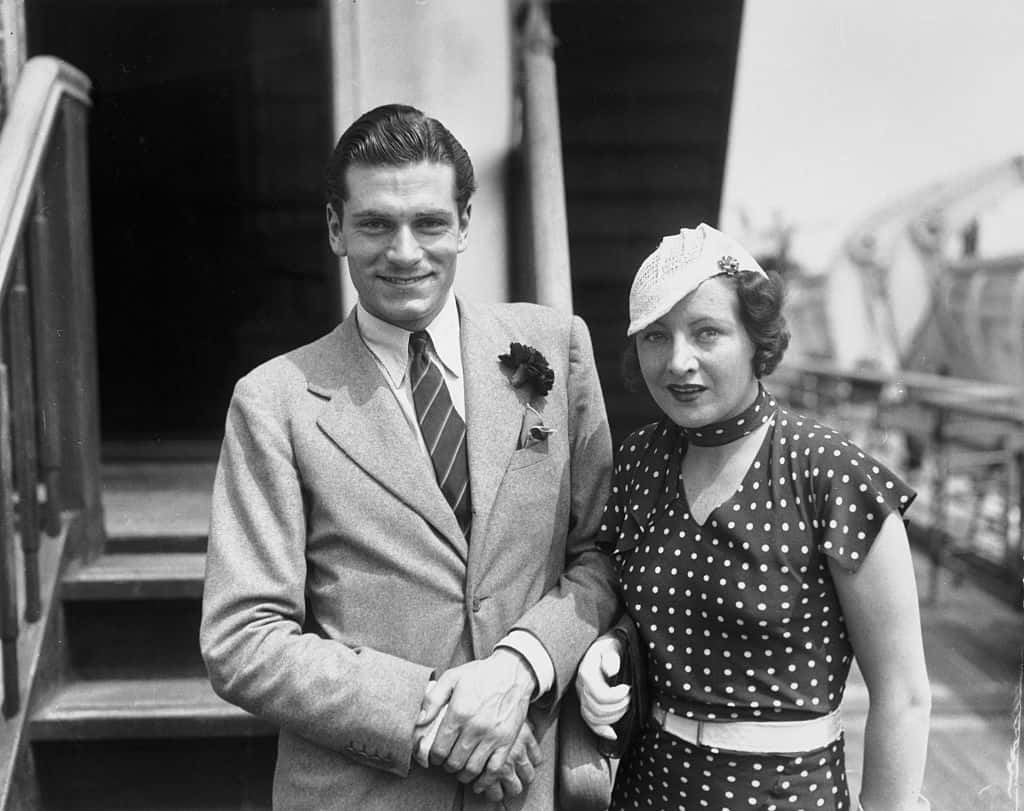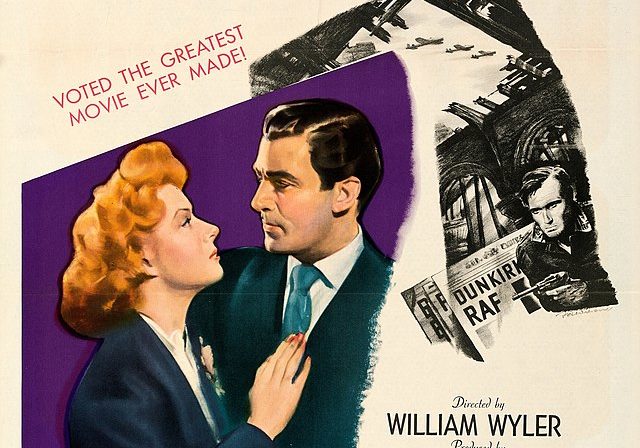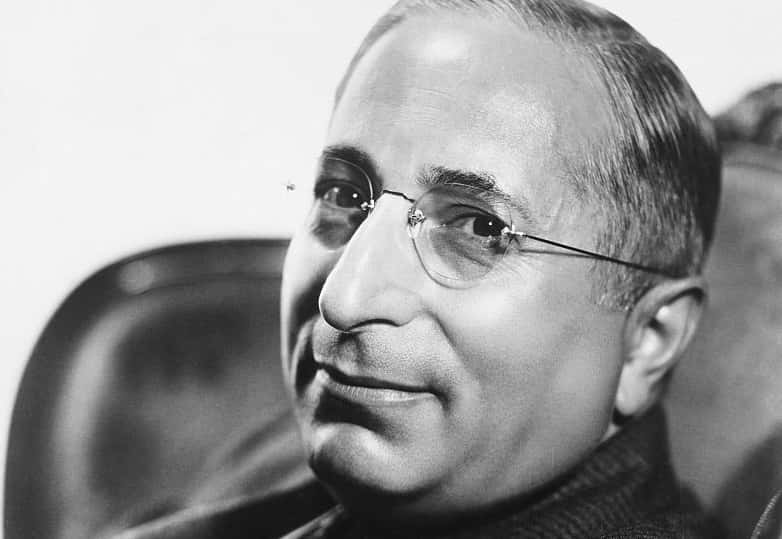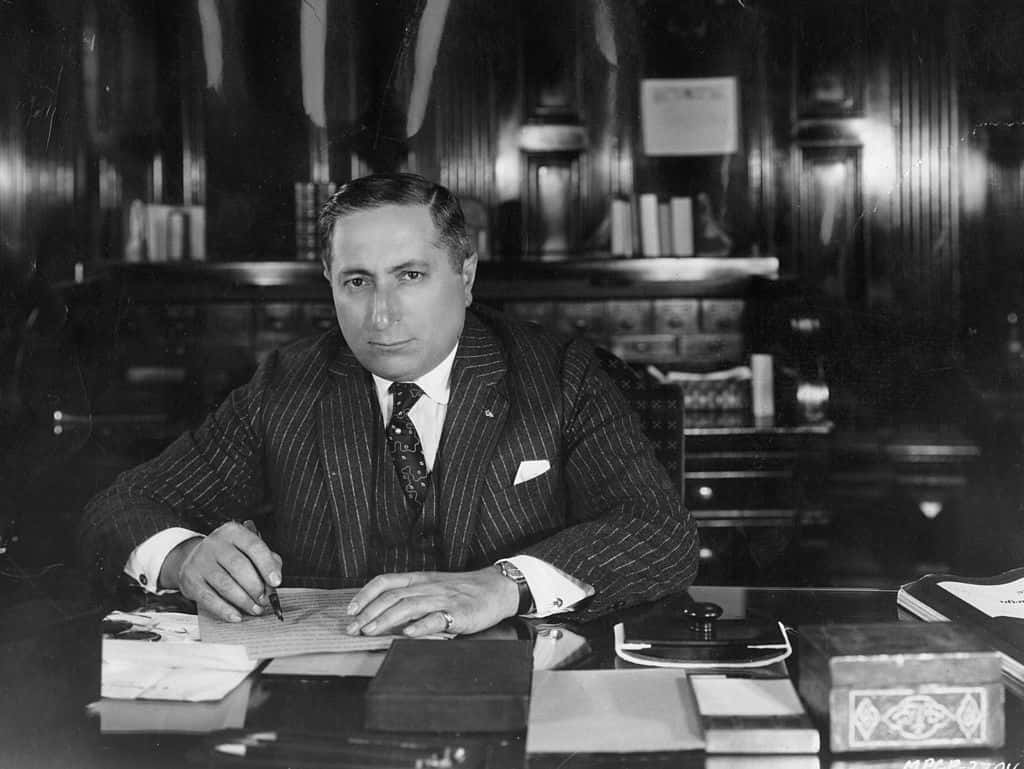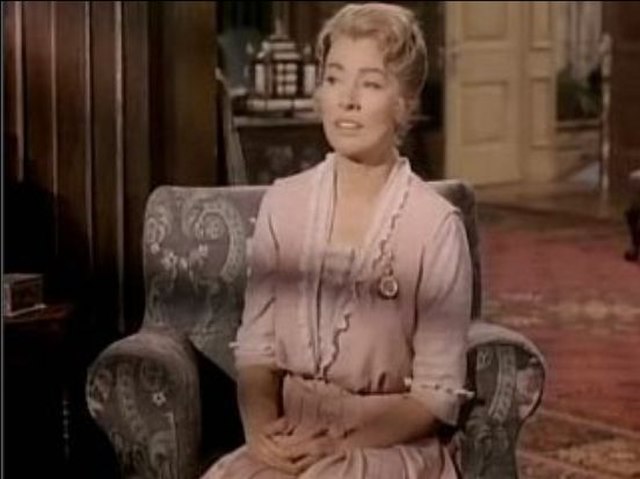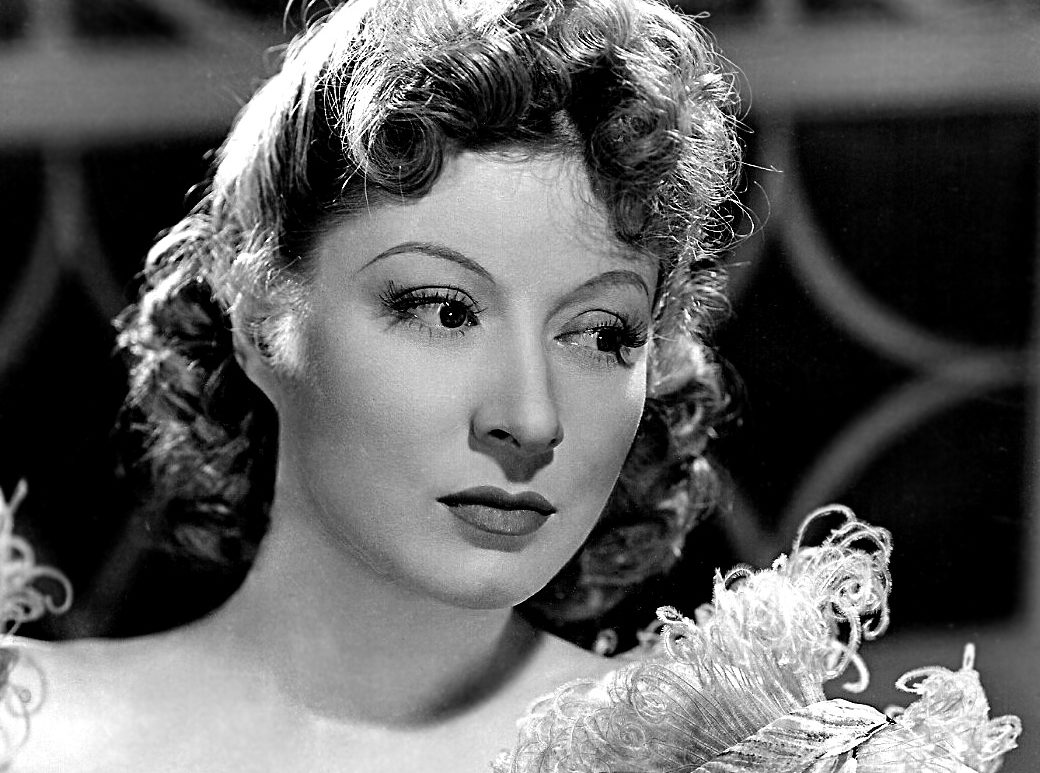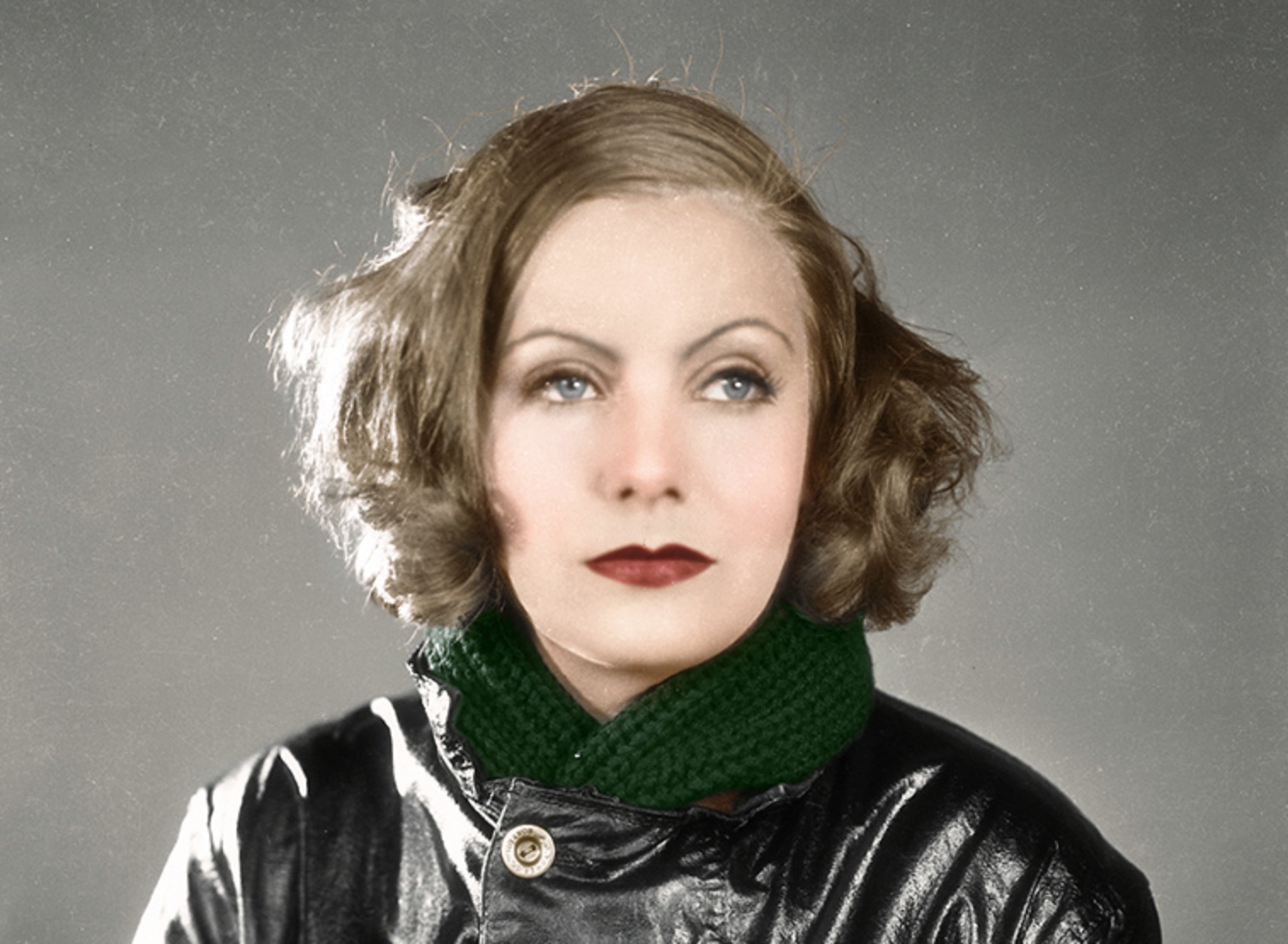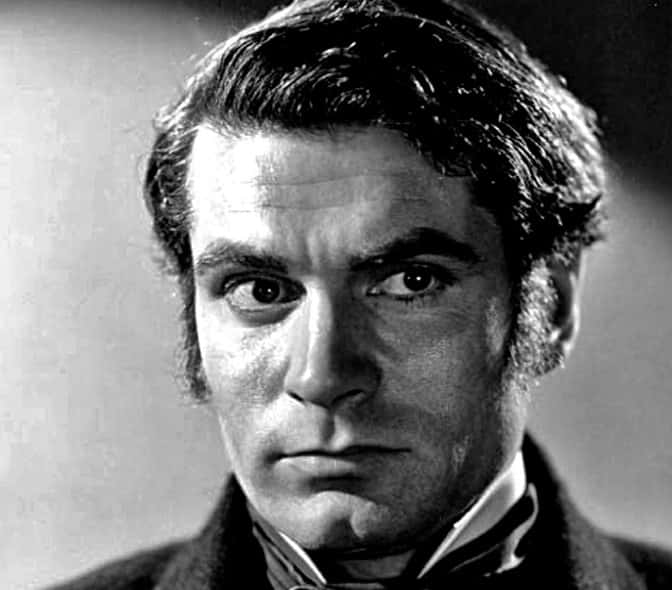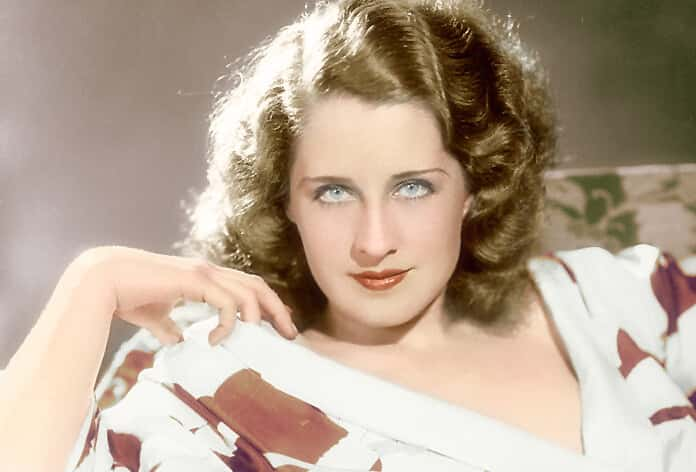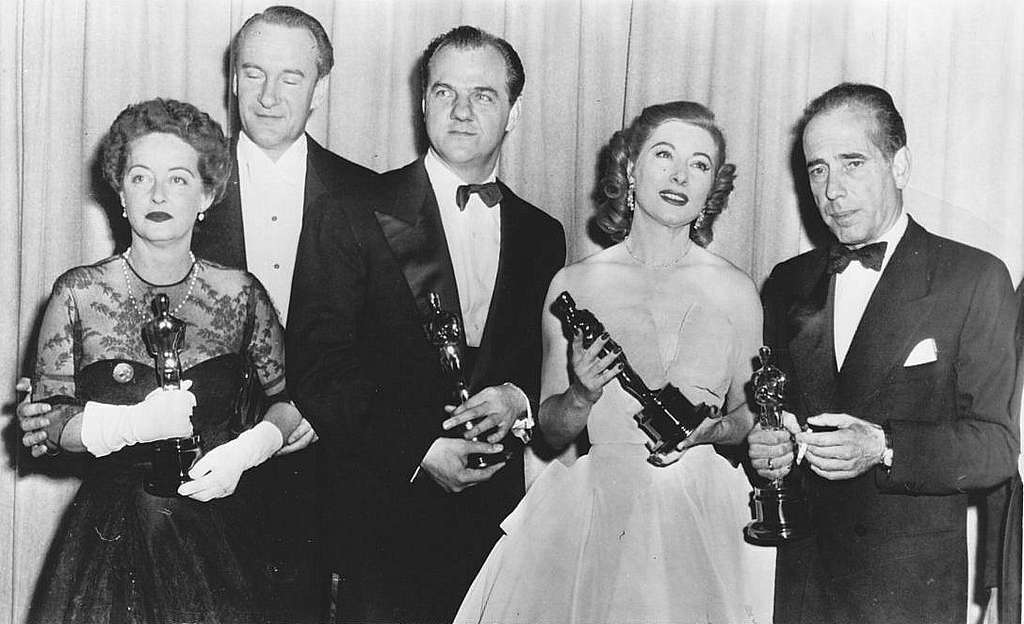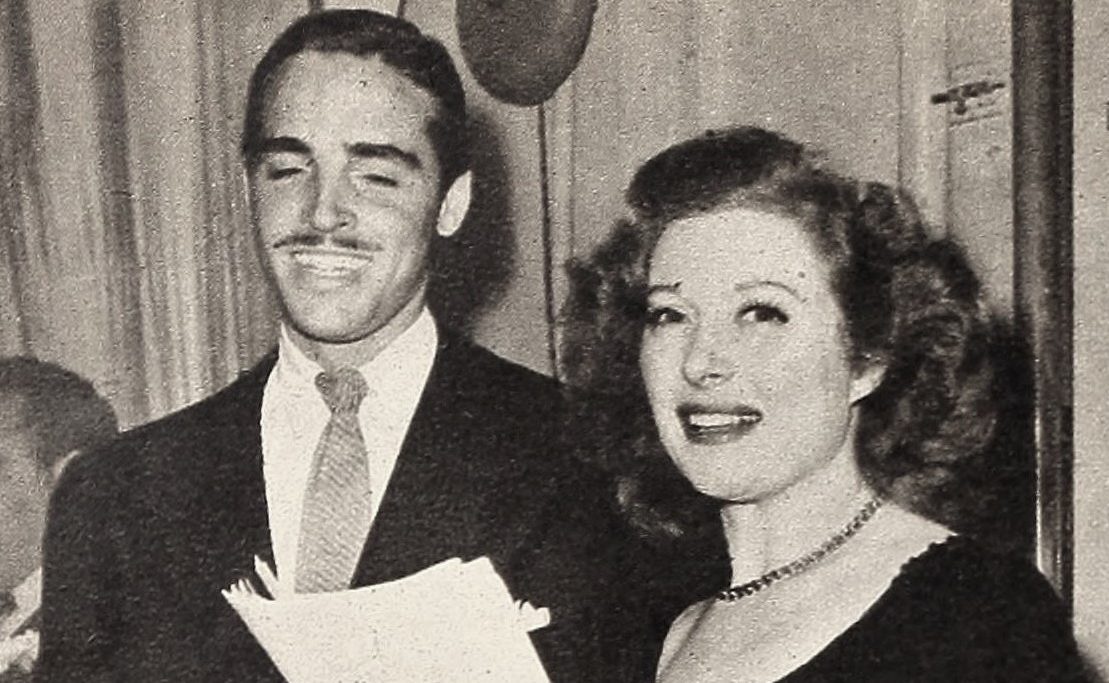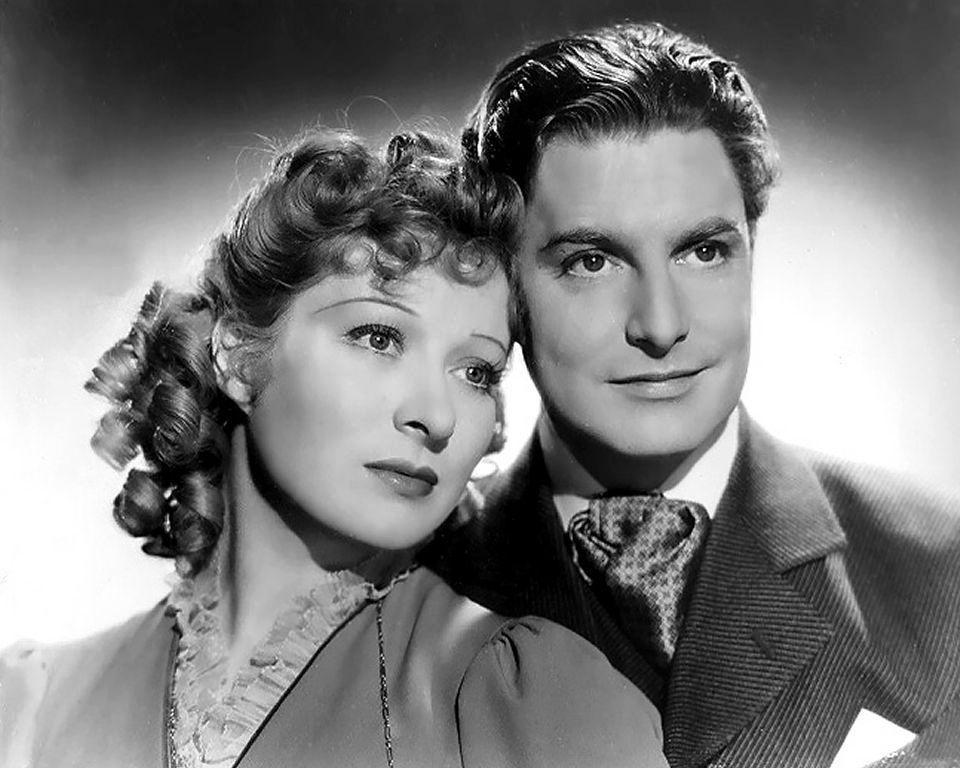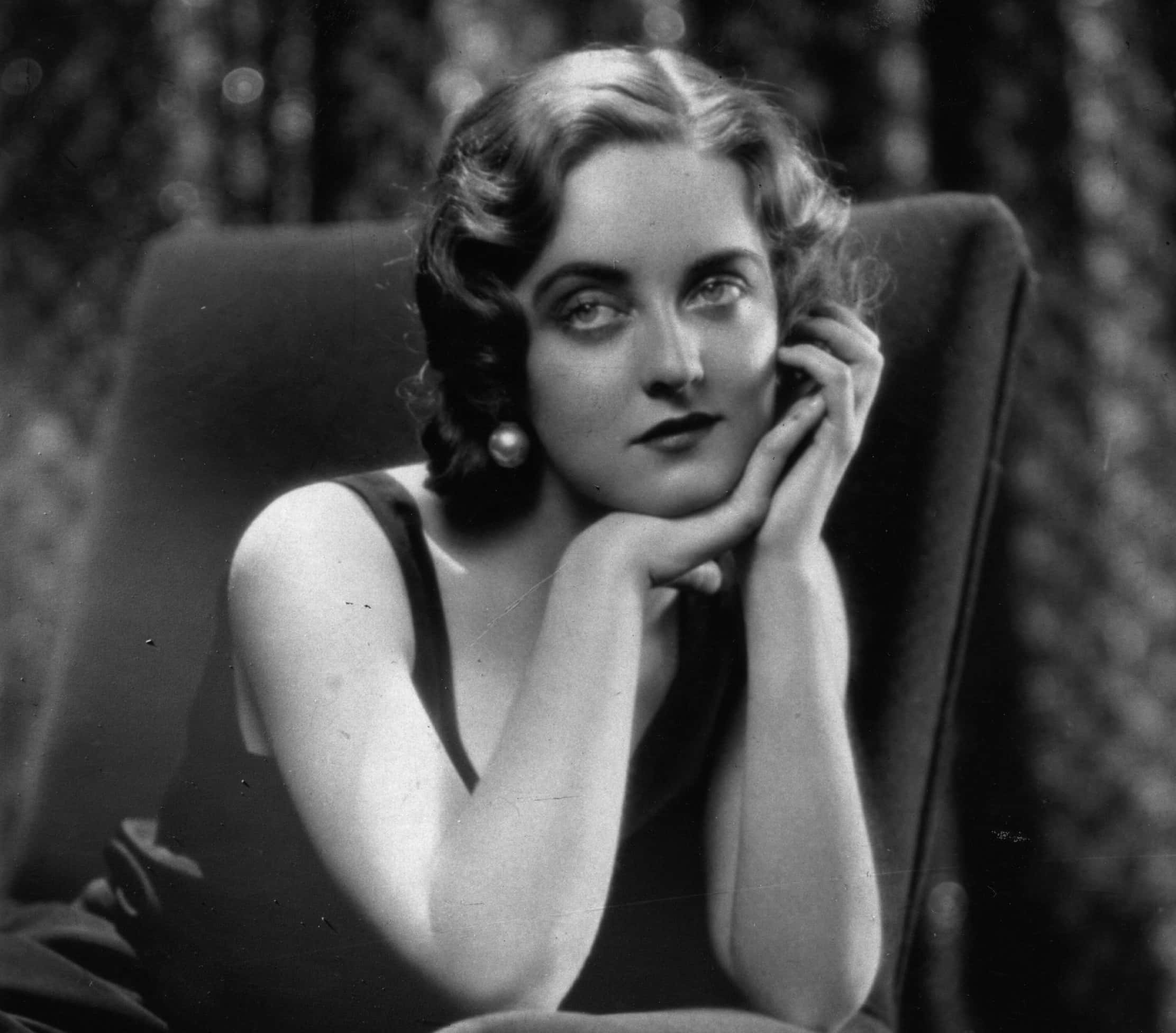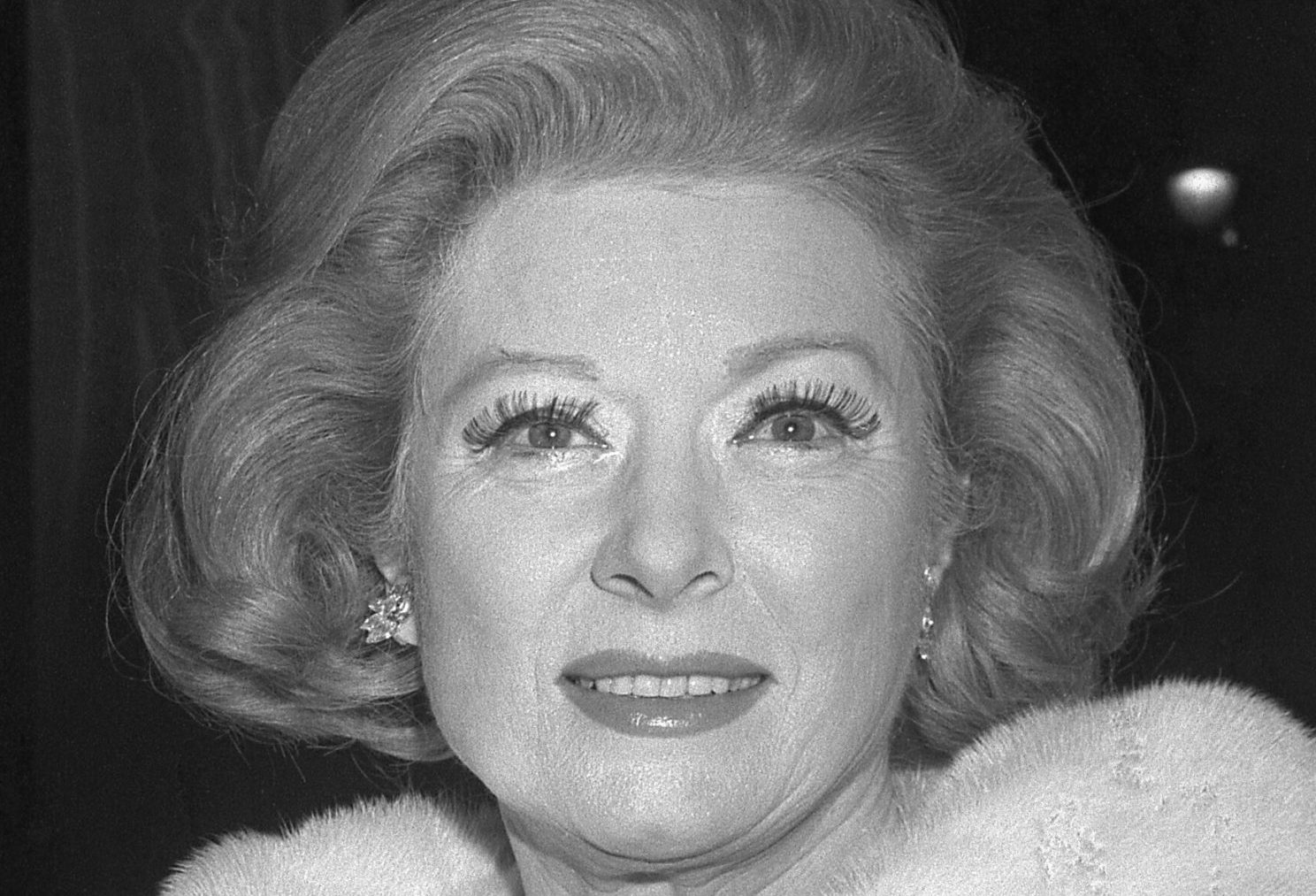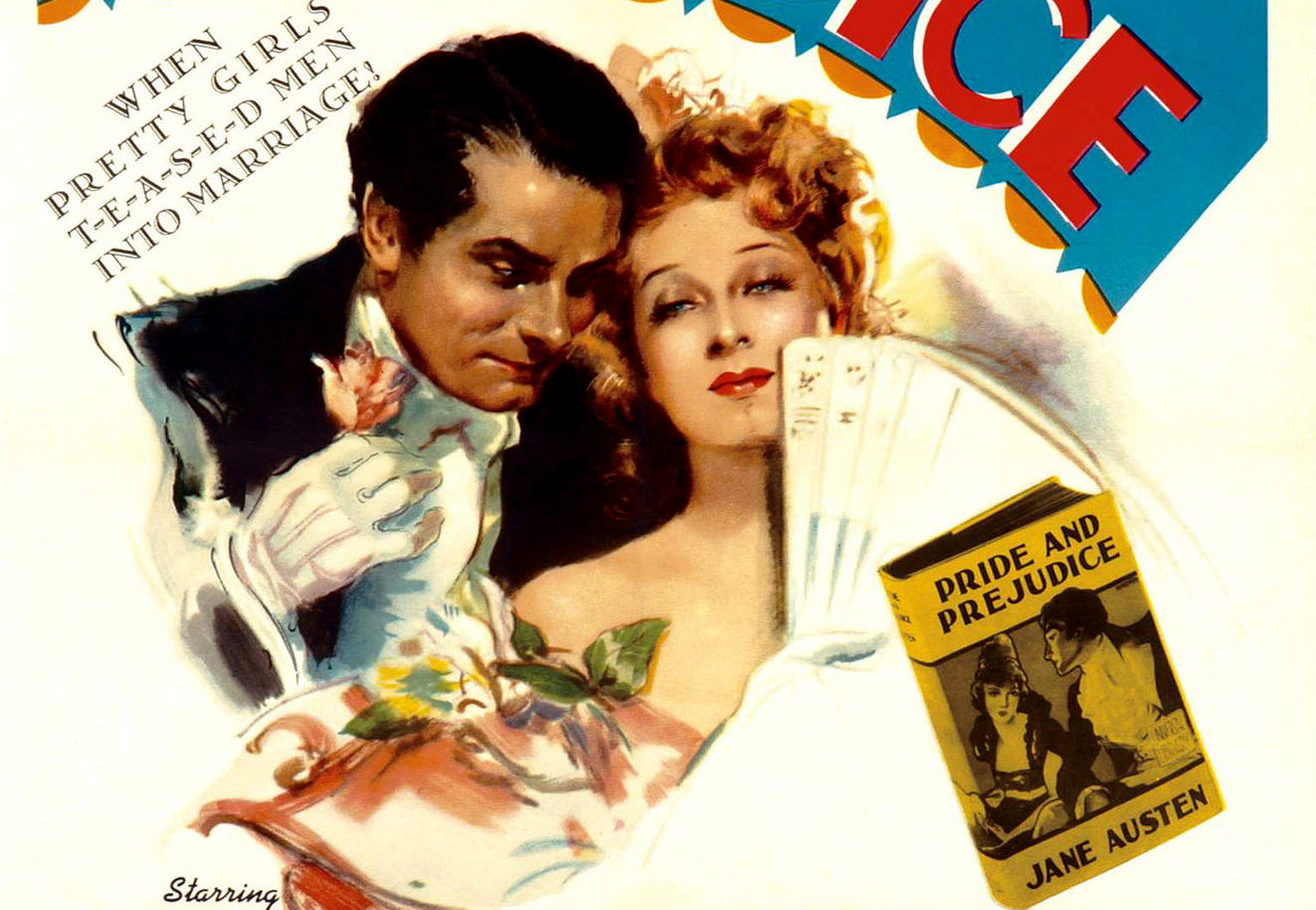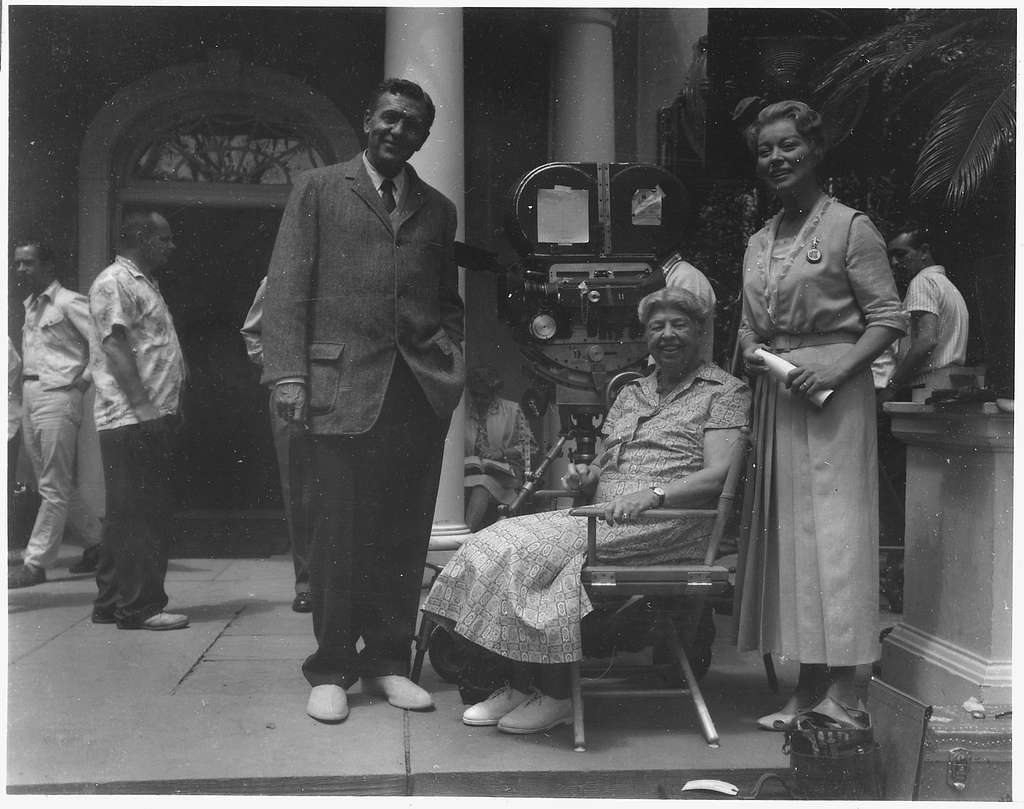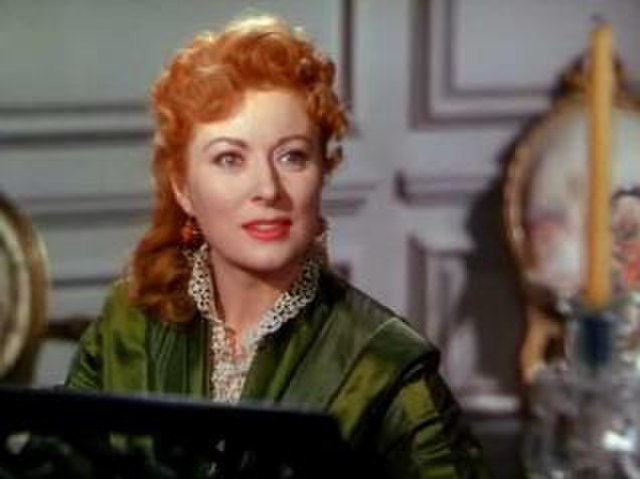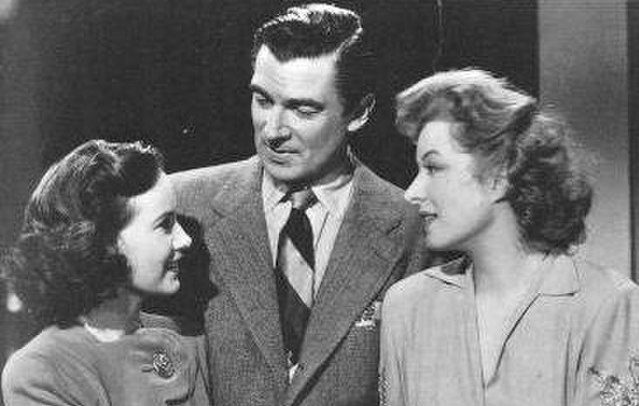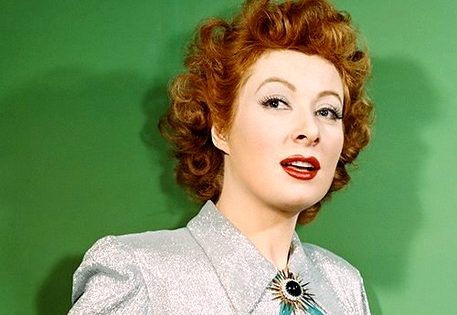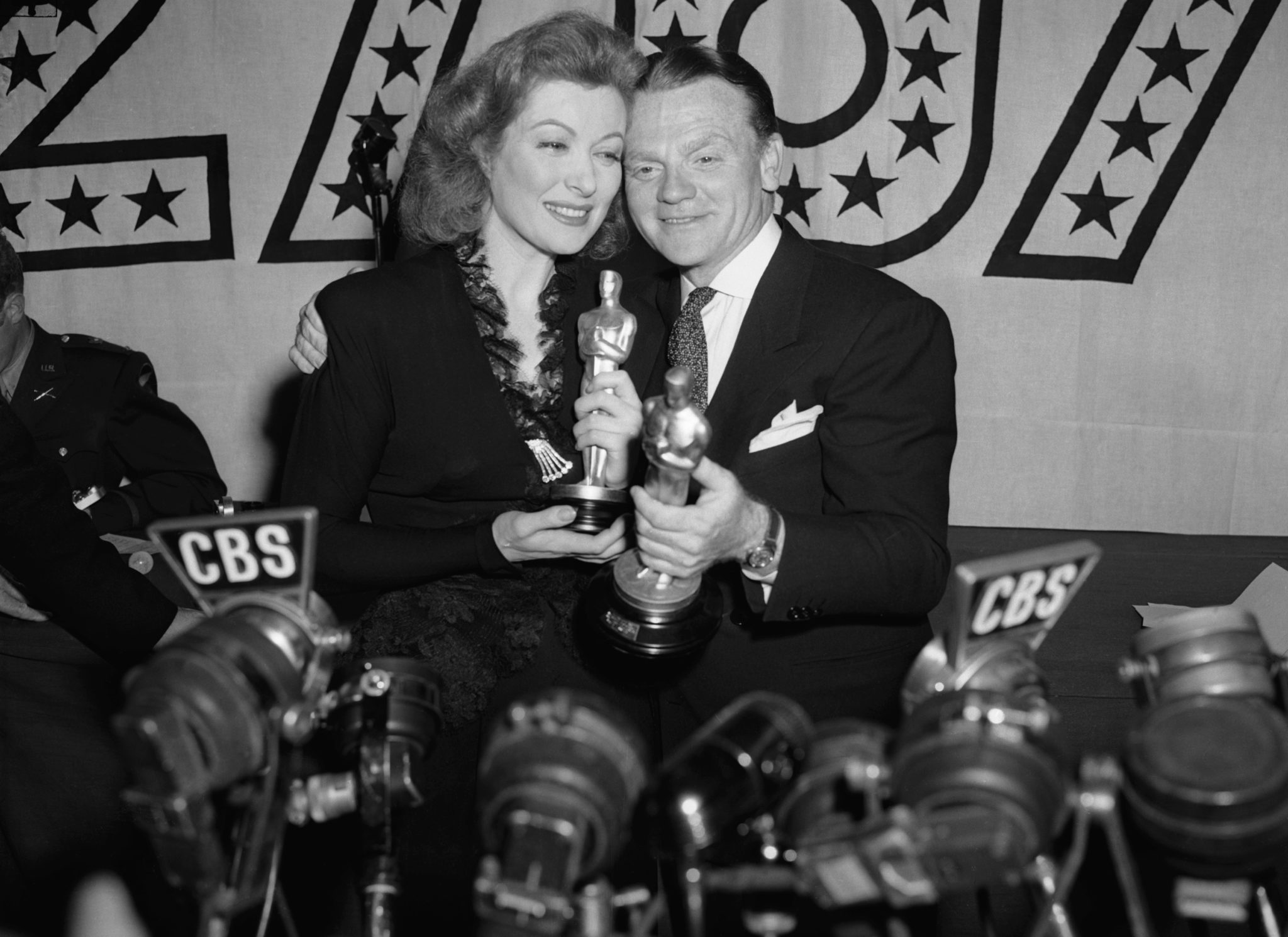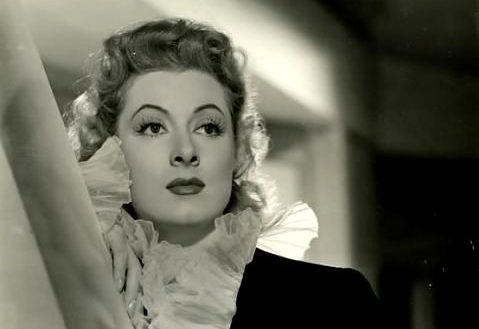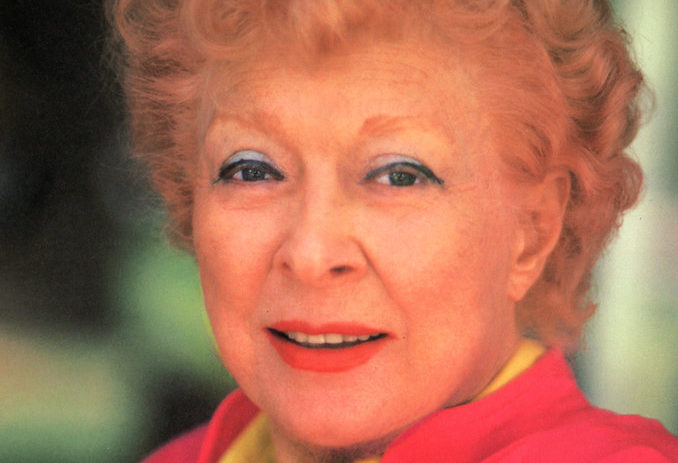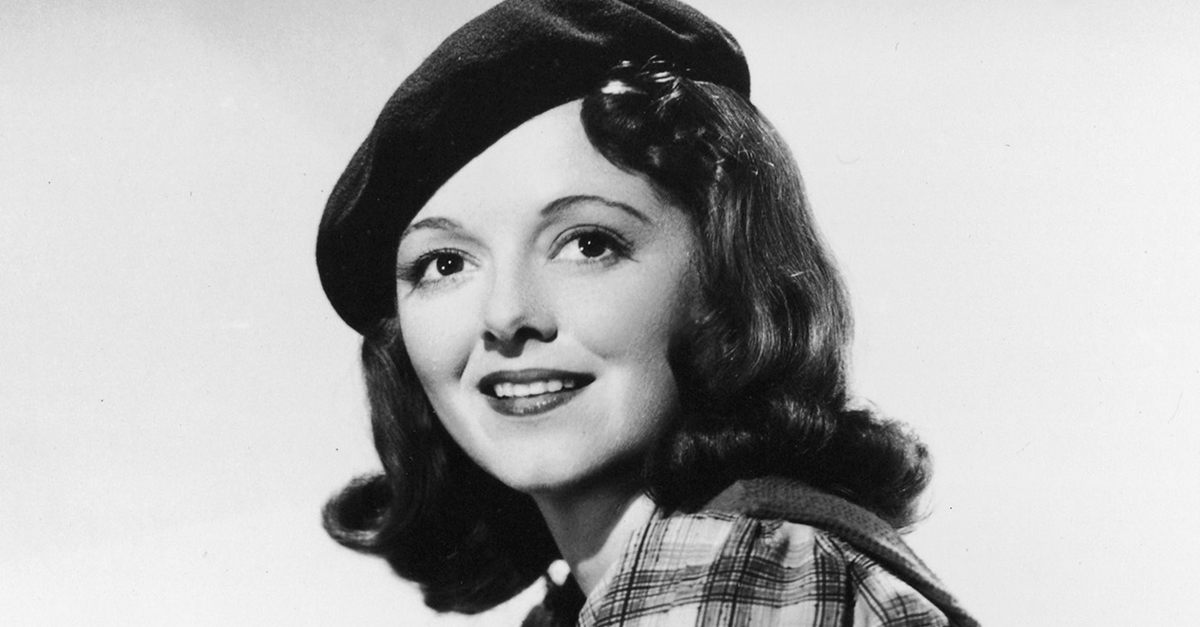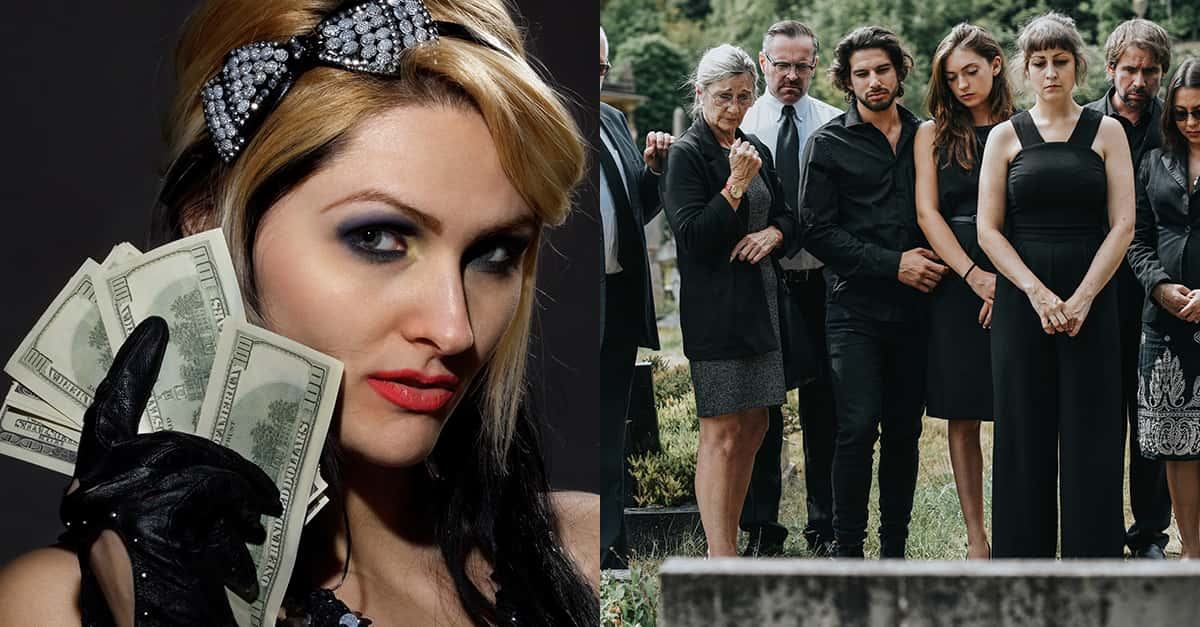Greer Garson's Perfect Face Hid A Lifetime Of Pain
Greer Garson was an international movie star and a world record holder in the 1940s who even appeared on the cover of Time Magazine. Yet her climb to the top was anything but easy—and some of the obstacles she faced were downright disturbing.
In 1946, Garson’s husband Richard Ney went completely off the rails. He’d always been temperamental, but one night he began pounding on her dressing room door, demanding to be let in. When Garson refused, he did the unthinkable.
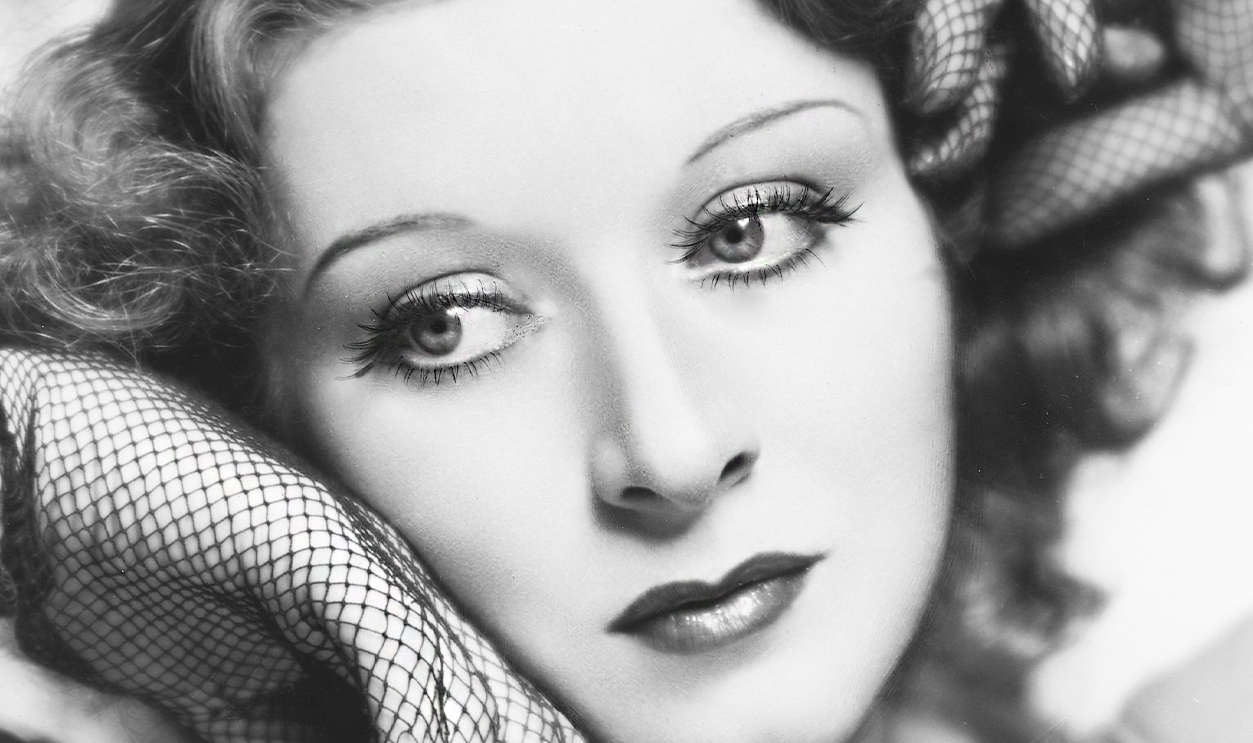
1. She Had A Rough Beginning
When Greer Garson was only two years old, she lost her father, who tragically passed during an appendectomy. This left her mother to support the tiny family, which she did by managing the townhouses her husband had owned. And the effects on Greer were utterly devastating.
2. She Was A Bit Of A Snob
Throughout her childhood, little Greer was frequently sick—perhaps due to her early trauma. But she made the best of it, reading a lot during her many illnesses, and she showed off her learning whenever she could. This had a heartbreaking consequence. Adults may have been impressed, but other children didn’t like her.
By her own admission, she was a “stuffy” little snob, so she didn’t have many friends her own age. But her drama-queen tendencies went hand-in-hand with impressive talent.
3. She Got On Stage Early In Life
At the tender age of four, Greer Garson appeared on stage at the village town hall, doing a dramatic recitation. It took no time at all for her to start winning prizes and awards for her acting, and the child relished the attention and success. She must have thought she was already well on her way to stardom. Unfortunately, fate—and her family—had other plans for her.
4. An Unusual Problem Kept Her From Watching Live Performances
Despite wanting to see professional actors on stage and learn from them how to be a better actor, the young Greer couldn’t go to the theater—and the reason why was a little bizarre. She was so highly strung that watching a performance was too much for her.
She would become so absorbed in the play that she was compelled to re-enact all the performances when she got home. Cue those fainting spells. And that wasn’t the only problem she faced…
5. Her Family Wanted Something Else For Her
Greer Garson most decidedly did not come from an acting family, and her mother, with whom she was close throughout her life, pushed her into academia. She excelled in university, breezing through a three-year degree with honors at the University of London and even going on to graduate school at the University of Grenoble.
But Greer considered her education a waste of time and pined for the stage. However, before she could attempt an acting career, tragedy came rushing into her life.
6. She Got Seriously Injured
On vacation in France, Greer was swimming with friends when disaster struck. She dove into a swimming pool—and damaged the lumbar vertebrae in her spine. Returning to London, she visited a chiropractor who was able to treat her injury to some extent, but it could only be managed, not fixed.
She would have to deal with recurring flare-ups of her back injury and her physical susceptibility to illness from childhood for the rest of her life.
7. She Finally Had Enough
Despite wanting to please her family, Greer Garson quit in the middle of her graduate studies, deciding to devote herself to acting as a full-time career. But then her mother brought in the heavy artillery—her strict Presbyterian grandmother, who was aghast at the very thought of her granddaughter on stage, parading around like a trollop.
Greer was stuck between a rock and a hard place.
8. She Made A Compromise
Unable to withstand the pleas of her mother and grandmother, Greer made a heartbreaking compromise. She wouldn’t go back to university, but she wouldn’t try to act full-time, either. She found a job as head of the research library in the marketing department at Lever Brothers, a manufacturing company.
Now, neither she nor her family was happy. But there was a silver lining…
9. She Took Advantage Of Am Opportunity
Greer Garson discovered that one of her colleagues at Lever Brothers had a connection to the theater. His sister was an actor with the Birmingham Repertory Company. Greer promptly finagled an interview with the business manager of the company, Cyril Phillips.
By her own admission, at the thought of being part of this distinguished repertory company, “a thousand little candles lit up inside [her]”. There was only one problem: Mr Phillips was not impressed.
10. She Didn’t Take “Don’t Quit Your Day Job” For An Answer
The unimpressed Mr Phillips gave Greer some depressing advice, telling her that she had a good job with a good company and should “stick to a good wicket.” He mentioned that his Birmingham manager would be coming to the office later that day and would tell her the same thing.
But Greer knew she was not going to be deterred any longer from her ambition, and she stayed put, determined to see the Birmingham manager.
11. Her Determination Paid Off
The Birmingham manager was impressed by Greer’s willingness to wait two hours to see him, and though he didn’t promise anything, he did invite her to Birmingham for an audition. Greer couldn’t have been happier. At the ripe old age of 27—even now fairly late in life to begin a show business career—she was finally on the verge of the career she had always wanted.
But before she even opened her mouth at the audition, the Repertory’s producer decided against her.
12. Like Water Off A Duck’s Back
As soon as Maxwell Wray, the Birmingham Repertory Company’s producer, saw Greer walk into the room for her audition, his reaction was devastating. “Another red-head”? he complained. He had hired one already and wasn’t interested in another. Undeterred, Greer pulled out all the stops, performing her heart out and showing off her undeniable beauty and talent.
Greer’s audition ended with Wray grumbling, “They’ll be no standing her. Too ladylike. Too brainy. A businesswoman with a BA, too”! But despite his protests—he hired her.
13. She Insisted On A Higher Salary
Despite the grumbling of Maxwell Wray and the fact that Greer had basically forced her way into the audition in the first place, she had the presence of mind—and the nerve—not to simply accept the salary she was offered. She was offered three pounds a week, but she bargained for four. It wouldn’t be the first time she insisted on being paid what she was worth.
14. Demanding Roles Took A Toll On Her Health
Greer Garson was thrilled to begin acting full-time—but her dedication had a chilling dark side. Greer’s body, never as strong as her will, couldn’t keep up with her punishing schedule. Touring with the repertory company and playing dual roles in a single play finally wore her down.
She ended up with pneumonia and strep throat, which then turned into bronchitis and tonsillitis. And things got worse from there.
15. The Cure Was Worse Than The Disease
Her doctor uncle performed an emergency tonsillectomy, but because Greer’s heart had been weak from birth, he had to do it without anesthetic. One would think it couldn’t get worse—but it did. As the indomitable Greer began very slowly to heal, she was the victim of a medical nightmare.
16. Her Beautiful Voice Was Gone
It was important for any actress to have a good voice, but Greer’s voice was especially lovely: cultured, low, and musical, it was an essential part of her elegant persona. But as she was recovering from her tonsillectomy, a nurse made a brutal mistake. She gave Greet lemon juice to drink. The acidic drink ravaged her raw throat and vocal cords, rendering her unable to speak at all.
She would eventually recover her voice, but not soon enough to save her job at the Birmingham Repertory Company. Her long illness led to her contract being terminated.
17. She Got Involved With The Wrong Man
Greer Garson was at a very low point in her life, feeling distraught and discouraged. During this difficult time, a childhood friend, Alec Snelson, contacted her. He was a British civil servant back in England from a post in India, and he was staying—all too conveniently—in a hotel near the cottage in Sussex where she had gone to recuperate.
He wined and dined her on the days she felt well enough for visitors, and he even composed a song for her. What girl in her state wouldn’t be flattered by the attention?
18. Her Mother Stage-Managed The Relationship
Alec seemed like a dream come true—but there was something that he was hiding from her. Unbeknownst to Greer, her mother had orchestrated the reunion between her and Alec, hoping that Greer would finally choose the stability of marriage over the instability of an acting career.
Knowing she wasn’t in love with him, Greer nevertheless made another bad decision because of family pressure, and she married him. The marriage, of course, was doomed from the start.
19. Her New Husband Was Possessive
Before the honeymoon even started, Greer knew she’d made a huge mistake. Alec didn’t let her have a minute to herself, smothering her with attention and with his incessant questioning about other men who might be interested in her.
She had suggested France as their honeymoon destination, but he chose Germany instead—and the reason why was a serious red flag.
20. He Tried To Isolate Her
Alec’s reason for choosing Germany over France for their honeymoon was disturbing: Greer spoke French but not German, so he reasoned that in Germany, “You will be dependent on me”. Even though she agreed to go to Germany, the very idea of Greer being dependent on him was laughable. And there was one final straw.
21. He Asked Her To Do The Impossible
Despite Greer and Alec’s many problems during the honeymoon, she was determined to stick it out. She was not a quitter. But Alec had an unpleasant surprise in store for her. He told her he expected her to move to India with him. Alec told her she could perform in the amateur theatricals with the other officers’ wives in India, clearly not understanding her real ambitions.
Greer refused outright, and they parted ways after the honeymoon.
22. She Reached A New Low
If Greer thought her life was going badly before marrying Alec, it seemed even worse now. Living with her mother in England after her ridiculous honeymoon, with her husband refusing to give her a divorce, she tried to get back into acting. Unfortunately, she found only walk-on roles.
She endured a year in this limbo state, then decided to celebrate her “Last Night as an Actress” with a toast to herself at the University of London Women’s Club. But that very night her luck would change.
23. She Was Finally Discovered
In that same dining room where Greer was wryly toasting the end of her acting career, novelist-playwright Sylvia Thompson was watching her. Sylvia was in the process of casting the female lead for The Golden Arrow, a play whose star was none other than Laurence Olivier.
Sylvia made a beeline for Greer, introduced herself, and invited the shocked young woman to audition. But there were still hurdles to overcome.
24. She Had To Learn An Accent Overnight
The audition was the very next morning, and Greer spent the night after meeting Sylvia reading the play. Unfortunately, the part she would be auditioning for was an American mistress of an English politician. At the audition, Greer summoned her memory of the speech patterns of a couple of Americans she had met years.
She managed to impress Sylvia as well as Lawrence Olivier. But the producer, Maurice Brown, wanted a different actor for the part and was completely opposed to Greer.
25. The Producer Hated Her
Greer got the part—but her triumph was quickly followed by disappointment. Maurice Brown made her work very difficult, criticizing everything from her appearance to her acting ability. Shockingly, after a week of rehearsals, he canceled the production, blaming Greer’s inexperience for his decision.
This setback could have derailed Greer’s career yet again, but she had a powerful new ally: Laurence Olivier himself.
26. Laurence Olivier Saved Greer’s Career
Before Greer could go back to that dining hall to resume her toast to the end of her acting career, Laurence Olivier telephoned her and the rest of the cast of The Golden Arrow, telling them to come back to work. He had decided to produce the play himself.
Greer proclaimed later, “Having Larry as a friend was the luckiest thing that ever happened to me”. She was certainly overdue for a little luck.
27. She Was One Of The First TV Stars
Like most actors of her generation, Greer Garson didn’t think much of films: the theater was the true medium for a serious actor. But when she was still exclusively a theater actor, an opportunity arose to appear on television, a brand-new medium. A mere four years after the first BBC experimental TV broadcast, Greer starred in How He Lied to Her Husband in 1937.
28. Hollywood Came Calling
Perhaps acting in front of a camera for the first time broke down Greer’s resistance to films, or—more likely—the interest of an influential American film producer did it. One night Louis B Mayer, head of MGM, was in London and saw Greer in a forgettable play. Greer, though, was clearly unforgettable, and Mayer asked her to go for dinner with him after the play.
Not knowing what his intentions were, Greer brought her mother along as a chaperone.
29. Things Were Looking Up
Fortunately, Mayer’s intentions were honorable: he just wanted to ask Greer to do a screen test for him the following day. Unlike so many of her auditions in the past, there was nobody present to criticize or otherwise interfere with her, and she sailed through the screen test with flying colors.
30. She Was Still In Control
Mayer was so impressed he offered her a contract on the spot. Greer’s reaction was surprising. True to form and cool as a cucumber, wouldn’t accept the salary he offered. She insisted on $500 per week, and she got it. According to some sources, this was the highest salary ever paid to a new film actress.
Elated, she headed to Hollywood with her mother. But once they arrived, there was a big problem.
31. The Studio Didn’t Let Her Act
Greer and her mother moved into a luxurious five-room house in Beverly Hills, but unfortunately, that’s where Greer stayed, day after stultifying day. The studio called her onto the lot only seven times for screen tests for films they never made. Basically, the studio paid her to wait until they could find a role for her.
There was nothing worse than waiting around for the driven, ambitious actor, and after almost a year, she was ready to give up and return to London.
32. Good Things Come To Those Who Wait
Before Greer and her mother could pack up and leave America behind forever, MGM finally offered her a role in a film they would actually make. The film was Goodbye Mr Chips—but there was a dark side to their offer.
She would play the role of a wife who dies in childbirth. It may not have seemed like a particularly auspicious beginning for her film career, but it would turn out to be the role that catapulted her into stardom.
33. She Had To Travel To A Surprising Place For Her First Film Role
Believe it or not, Greer filmed Goodbye Mr Chips in the very place she had been planning to go when she was about to give up on her film career. Yes, England! She and her mother embarked on a luxury ocean liner that the studio paid for, and they would cross the Atlantic three times just to make a film in her own home country.
34. She Became a Hollywood Star
Despite the relatively small role Greer played in Goodbye Mr Chips, the film was a huge success and garnered her first Oscar nomination for Best Actress. Greer was finally a Hollywood star at the age of 35. It might have seemed like a late success to her, but the timing was perfect for Hollywood.
Norma Shearer and Greta Garbo, both known for their stunning beauty and elegance, were retiring, and Greer stepped into the empty space they left behind.
35. She Played A Memorable Literary Character
In 1940, the year after her film debut, Greer got another plum role—Elizabeth Bennet in an adaptation of Jane Austen’s Pride and Prejudice. This role was memorable for two reasons. First, her co-star, playing Darcy, was her old friend and supporter, Laurence Olivier. Second, at 36, Greer had snagged a part that was for a 20-year-old girl. But her next important role would challenge her in exactly the opposite way.
36. Playing A Younger Woman Was Fun; Playing An Older One, Not So Much
After playing a younger woman in Pride and Prejudice, Greer was hesitant to accept the role of an older woman in Mrs Miniver. Other actors such as Norma Shearer had turned it down for exactly that reason. But studio head Louis B Mayer convinced her by appealing to her sense of patriotism: the film was a tribute to British fortitude during WWII.
37. Mrs. Miniver Was Her Ticket To Superstardom
It turned out that taking on the role of Mrs Miniver was the best career move that Greer could have made. At the film’s release in 1942, it broke box office records across the United States, making the studio a profit of $4.8 million and garnering 12 Oscar nominations. Of those, Greer won the Oscar for Best Actress and broke a world record in the process—all for a bizarre reason.
38. She Broke a World Record at the Oscars
Greer’s acceptance speech for her Best Actress award at the 1943 Oscars was a whopping five minutes and thirty seconds long. This remains the longest-ever acceptance speech at the Academy Awards, and it was because of her speech that the Academy decided to impose a time limit. She had waited a long time for this recognition—no wonder she was enjoying her moment!
39. She Robbed The Cradle
Greer was enjoying something else too—and this was a lot racier than her career success. Greer had captured the attention of her young co-star in Mrs Miniver. Remember that college-age son Mrs Miniver had? Yeah, him. The actor playing her son was Richard Ney, who was in reality 15 years Greer’s junior.
But love blossomed between the unlikely couple, and the press went crazy over the May-December romance.
40. The Studio Tried To Keep The Relationship Quiet
Dismayed by the age difference between Greer and Richard and worried that the public would think of them as an actual mother and son, Mayer convinced them to delay their marriage until after the film’s release. The studio was afraid of negative publicity as well as losing money. Neither fear materialized.
They clearly hadn’t heard the adage, “There’s no such thing as bad publicity”. Greer and Richard married in 1943, a year after Mrs Miniver’s release.
41. She Set Another Record
In 1944 and 1945, Greer Garson was at the top of her game. In December 1944, she appeared on the cover of Time magazine. She received thousands of fan letters every week, and there were images of her on everything from coloring books to paper dolls. In 1945, she tied with Bette Davis for the most consecutive Oscar nominations: the Academy had nominated her every year since 1941.
Sadly, disaster was just around the corner.
42. She Injured Her Back Again
While riding the wave of her fame, a literal wave injured Greer on the rugged central coast of California while she was filming a new movie, Desire Me, in 1946. She and her co-star were rehearsing on the rocks at the water’s edge when a big wave knocked them into the water. A local fisherman rescued Greer, but her back injury—her second major one involving water—was serious enough that she needed multiple surgeries in the years following the accident. And that wasn’t the only event that knocked her down.
43. There Was Trouble In Paradise
As Greer struggled with her new back injury and other difficulties on the set of Desire Me, there was even more turmoil behind the scenes. Her husband Richard became petulant and moody. He mocked her, telling her that her career was over. He also didn’t give her the space she needed to rest and to work.
His frustration with her need for space led to a terrible confrontation.
44. Her Husband Lost His Temper
One night over the Christmas holidays in 1946, Richard’s frustration reached an unmanageable level. Exhausted from a long day on the set, Greer went to her dressing room and closed the door. Richard pounded on the door, demanding to be let in, and when she wouldn’t agree, he knocked down the door and “made a great scene”.
It turned out that Richard had been frustrated over a lot of things in their marriage.
45. Her Marriage Failed
Greer and Richard divorced in 1947. Ultimately, there were two problems from Richard’s point of view. First, he was still trying to establish his acting career, and he didn’t handle his wife’s stardom well. Second, he didn’t get along with Greer’s mother, who lived with them. But for Greer, her husband was optional; her mother was not. Richard was out.
46. Her Ex’s Next Marriage Showed A Pattern
After divorcing Greer, Richard went on to marry another woman. Many actors marry several times, but his new wife was suspiciously similar to Greer in one important respect. She was older than Richard. Not only that—she had been his substitute art teacher in high school.
Richard clearly had a “type”. But this marriage ultimately failed too. And what of Greer?
47. When You’re At The Top, There’s Just One Way To Go
Greer continued to take on film roles, but none of them came close to the success of her role as Mrs Miniver. And by the 1950s, the public was losing interest in the type of role Greer had perfected: the virtuous, long-suffering women that Greer herself referred to as “walking cathedrals”.
The studio had typecast her, and her roles from this point on were largely forgettable. But her personal life was looking up.
48. The Third Time Was The Charm
In 1949, Greer married her third husband, Elijah E “Buddy” Fogelson, a Texas oil millionaire. Nobody would have chosen him as the perfect match for the elegant English rose, but it turned out to be a match made in heaven.
They remained together for the rest of their lives, and once married, Greer devoted more time to their multiple luxurious homes and to charity work than to acting.
49. She Came Full Circle
Even though Greer pulled back from acting after marrying Buddy, she returned to her roots in two important ways. After a 20-year hiatus from the stage, she took the lead role in Mame on Broadway, where she was a great success. She also became an American citizen, finally achieving the American identity in reality that she had feigned for The Golden Arrow audition nearly 20 years earlier. But this decision would have an unfortunate consequence.
50. She Was Knighted But Couldn’t Be Called A Dame
In 1984, Greer was named “an honorary Commander of the Order of the British Empire,” a full knighthood. Her health was failing in her later years, and she wasn’t able to attend the ceremony where the queen would have knighted her in person. It was certainly an honor to gain this recognition, but the usual way to refer to a woman with a knighthood (in her case, as “Dame Greer Garson”), was not possible—because she had given up her British citizenship.
Unfortunately, something even worse was in store for her.
51. Her Oscar Met A Fiery End
In the 1980s, a fire at her Bel Air home destroyed Greer’s 1943 Oscar for Best Actress. She was not at home at the time and instead had to watch her house going up in flames on the TV news. For someone so used to taking matters into her own hands, it must have been maddening to be so helpless. Fortunately, the Academy sent her a replacement Oscar to make up for the loss.
52. She Left A Legacy Of Perseverance
Despite her many health problems, Greer Garson lived a long life. She passed on due to heart failure at the age of 91, leaving behind an impressive legacy. Her nicknames, “The Duchess of Garson”, because of her elegance, and “Career Garson”, because of her ambition, get to the heart of her inspiring legacy, showing what perseverance can accomplish.


